UNLOCKING PARTNER VALUE
HIGHLIGHTS
GITEX NIGERIA
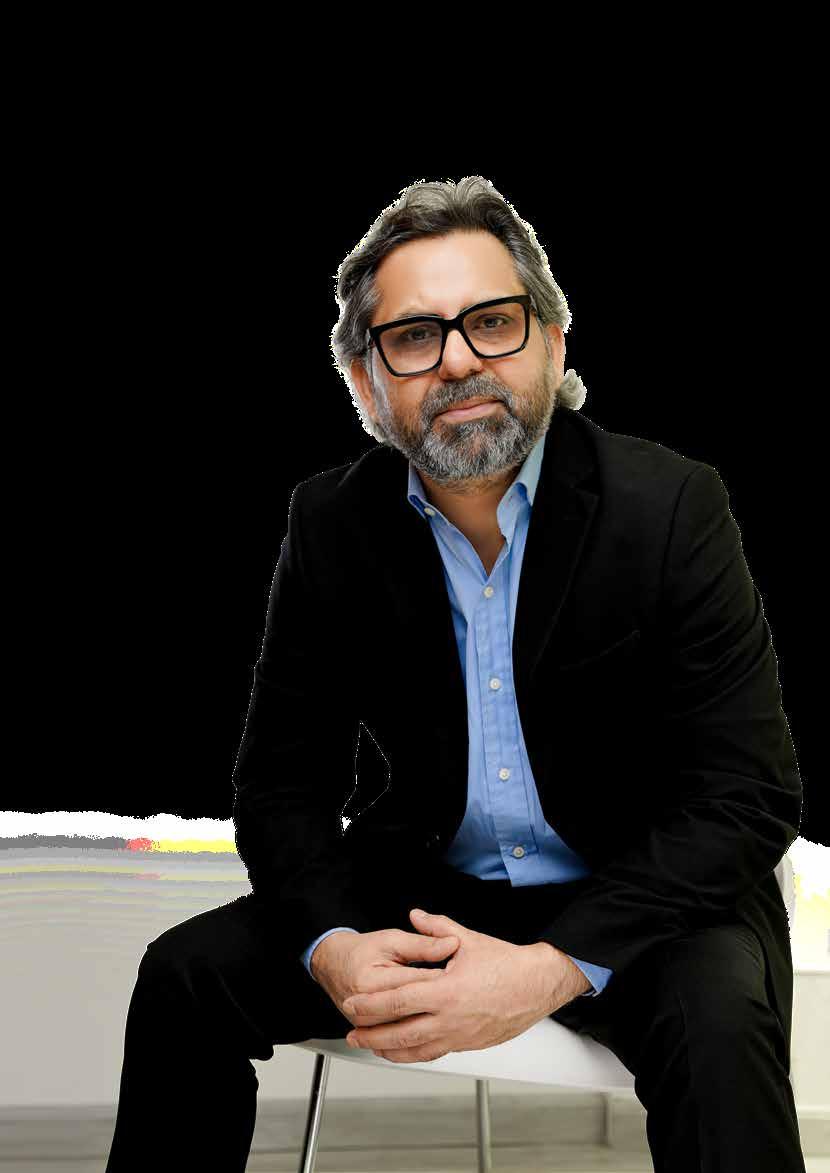

UNLOCKING PARTNER VALUE
HIGHLIGHTS
GITEX NIGERIA

Quantum Edge’s Asif Khan on the roadmap guiding the company’s growth journey

IT MAX GLOBAL UNVEILS AGENTIC AI TO REDEFINE CUSTOMER EXPERIENCE

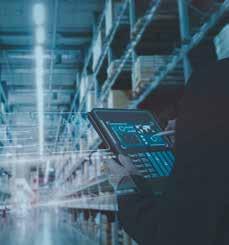

REDINGTON TOOK THE STAGE TO ‘UNLOCK NEXT’ AT GITEX NIGERIA
LEXAR STRENGTHENS MEA PRESENCE WITH EXPANSION TO OVER 5,000 RETAIL STORES
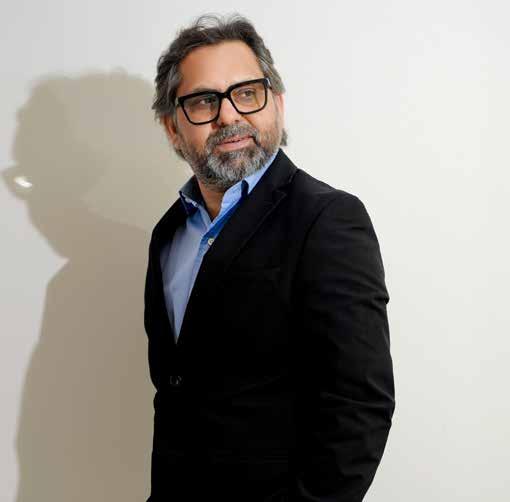
FUTURE READY ENTERPRISES THE WINDOWS 11 REFRESH: WHY BUSINESSES MUST PLAN AHEAD





The pace of transformation in the Middle East and Africa’s technology landscape has reached an inflection point. What we’re witnessing isn’t merely evolution—it’s a fundamental reimagining of how the channel operates, competes, and creates value in an AI-driven world.
This issue captures that shift through the voices of leaders who are actively reshaping the industry. In our lead story, Asif Khan of Quantum Edge Distribution reveals how strategic localisation and digital innovation are redefining the rules of IT distribution across MEA. Meanwhile, our exploration of “Navigating AI Ethics in the Channel” brings together perspectives from industry leaders on how partners can balance innovation with responsibility.
The tension between innovation and responsibility runs through every conversation. In our feature, “Greener vs Smarter: The Channel’s Device Dilemma,” executives discuss how channel partners are balancing the demand for cutting-edge AI-powered devices against growing sustainability expectations.
Perhaps most telling is how the traditional boundaries of the channel are dissolving. Renton D’Souza from Comstor MEA demonstrates how distributors are becoming ecosystem orchestrators while our interviews with Confluent, Epicor, Acronis, DXC Technolgy and D-Link reveal a fundamental shift where technology companies are moving beyond transactional relationships to become strategic enablers of partner success.
The regional dimension adds another layer of complexity. As governments across the MEA region accelerate their digital transformation agendas—from Saudi Vision 2030 to the UAE’s smart city initiatives—the channel finds itself at the centre of national competitiveness strategies. Our coverage of GITEX Nigeria demonstrates this elevation from a commercial function to a strategic enabler of economic development.
What emerges from these pages is a channel ecosystem that is maturing rapidly, driven by partners who understand that success now depends on their ability to navigate multiple dimensions simultaneously: technological complexity, regulatory compliance, sustainability requirements, and evolving customer expectations.
Enjoy reading!
Published by
Publication licensed by Sharjah Media City
@Copyright 2025 Insight Media and Publishing
Managing Editor
Adelle Geronimo
adelleg@insightmediame.com
+97156 - 4847568
Production Head
James Tharian
jamest@insightmediame.com
+97156 - 4945966
Sales Director
Merle Carrasco
merlec@insightmediame.com
+97155 - 1181730
Administration Manager Fahida Afaf Bangod
fahidaa@insightmediame.com
+97156 - 5741456
Operations Director
Rajeesh Nair
rajeeshm@insightmediame.com
+97155 - 9383094
Designer Anup Sathyan
While the publisher has made all efforts to ensure the accuracy of information in this magazine, they will not be held responsible for any errors
Khazna Data Centres (Khazna) announced that it has secured a US$2.62 billion financing facility to fuel its ambitious UAE and international growth plans.
The landmark financing deal, among the largest in the MENA region, was secured in partnership with two top UAE banks – Abu Dhabi Commercial Bank (ADCB) and First Abu Dhabi Bank (FAB). With a tenor lasting up to 10 years, the financing facility will enable Khazna to progress on the build-out of its operational expansion across the MENA region.
According to Mordor Intelligence, the MENA region’s total data centre capacity is set to double over the next five years. With the capital unlocked through this recent financing deal, Khazna will be at the forefront of regional data centre market growth, preserving its 73 per cent market share in the UAE and growing its share in other markets.
Khazna has several projects underway, including two new facilities in Abu Dhabi, one in Dubai, and the region’s first AI-enabled
data centre in Ajman. The new financing facility will supercharge Khazna’s ability to expand both at home and abroad. Time to value will be realised quickly, thanks to a modular construction approach that significantly drives down the cost, environmental impact and time required to build a new facility.
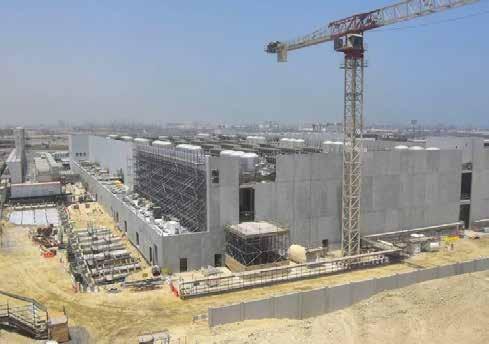
With customer expectations rising for faster, more personalised, and more meaningful interactions, traditional customer experience models are struggling to keep up. IT Max Global has introduced Agentic Artificial Intelligence (AI)—a next-generation approach that blends automation, intelligence, and human empathy to transform the way organisations engage with their customers.
Unlike traditional AI, which focuses mainly on automating repetitive tasks, Agentic AI takes an active role in shaping customer interactions. It integrates across multiple systems to create a unified, real-time view of each customer, generates intelligent summaries of past interactions,
and provides agents with timely insights. Over time, it learns from every exchange—suggesting best-fit solutions and identifying emerging patterns.
The result is a contact centre model where technology empowers agents instead of overwhelming them. Freed from routine processes and fragmented systems, agents can focus on listening, problem-solving, and building trust—delivering experiences that feel both personal and memorable.
IT Max Global is already applying these principles in the UAE and wider MEA region. For a major healthcare provider, it built an AI-first contact centre that unifies patient data across

12+ systems to provide a 360º patient view. For a fully digital UAE bank, it created an omnichannel experience that enhances trust and loyalty in a branchless model.
By pioneering Agentic AI, IT Max Global aims to bridge the gap between automation and human touch— shaping a future where every customer interaction is more human, connected, and impactful.

Al Salam Bank has signed a strategic deal with Denodo and NAIB IT, a Bahrain-based systems integrator known for delivering high-impact technology solutions across banking, government, public sector, and enterprise organisations. The agreement aims to adopt the Denodo platform to amplify the Bank’s data and AI infrastructure, in line with Bahrain’s Vision 2030 and the national direction toward digital transformation.
The signing ceremony was attended by Shaikha Dr. Dheya Bint Ebrahim Al Khalifa, Managing Director at NAIB IT; Anwar Murad, Deputy CEO –Banking at Al Salam Bank; Hemantha Wijesinghe, CTO at Al Salam Bank; and Gabriele Obino, Denodo Regional Vice President South Europe and Middle East and General Manager Denodo Arabian Limited.
Through the Denodo platform, Al Salam Bank will be able to unify
its enterprise data across various systems, enabling faster decisionmaking and driving innovation.
This step also reflects the Bank’s commitment to leading innovation in digital banking, in line with the Kingdom of Bahrain’s long-term economic vision.
Al Salam Bank has signed a strategic agreement with Denodo and NAIB IT to advance its data management and AI initiatives through AWS Marketplace, enabling faster procurement, cloud-native scalability, and real-time access to data products to accelerate innovation. The agreement forms a key pillar in Al Salam Bank’s broader digital transformation roadmap, reinforcing its position at the forefront of smart banking in the region. With the Denodo Platform’s logical data management capabilities including a universal semantic layer, Al Salam Bank can connect and manage data
from its core systems, cloud-based services, and fintech partners, within minutes instead of weeks. The interoperability among the different systems will enable AI-powered analytics and reporting, enabling faster, data-driven decisions at the executive and operational levels.
By adopting the Denodo Platform’s logical data management layer and leveraging NAIB IT’s deployment expertise, the Bank expects further enhancements in operational efficiency, regulatory compliance, and service agility. Real-time access to data will not only empower teams with faster insights but also elevate the end-user experience.
In embracing this transformation, Al Salam Bank reinforces its position as a technology-forward institution, aligned with the aspirations of Bahrain’s Vision 2030 and prepared to lead in a future defined by intelligent financial services.
Redington reinforced its growing commitment to Unlock Next and drive Africa’s digital transformation journey at the inaugural edition of GITEX Nigeria, happened from 1st to 4th September 2025 in Abuja and Lagos.
Redington has established a strong presence across Africa by enabling partners and customers with next-generation technologies and new business models. Its participation at GITEX Nigeria marks the next step in strengthening collaborations and accelerating digital growth across the continent.
Redington showcased its comprehensive portfolio of world-class solutions, alongside global technology leaders including Dell Technologies, AWS, Microsoft, Red Hat, Trend Micro, Western Digital, and iStore, an Apple Premium Reseller.
During the tech expo and AI summit, Sayantan Dev, Global Head of the Software Solutions Group (SSG), Redington Group, engaged with partners and stakeholders – introducing the newly launched Software Solutions Group to Nigeria and sharing its vision to fast-track software-led growth and accelerate digital transformation across Africa.
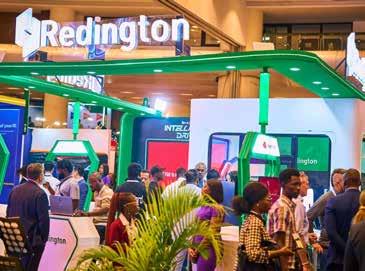
In addition, the distributor hosted the Redington Ecosystem Gathering & Awards, an exclusive evening dedicated to honouring top partners and celebrating collaborations. Previously held alongside GITEX GLOBAL and LEAP Saudi Arabia, this flagship event made its Nigerian debut this year.
Visitors to Redington’s stand had the opportunity to engage with the company’s leaders and industry experts, experience live technology sessions, and join thoughtprovoking conversations on Technogram by Redington, the company’s podcast channel.
By bringing together technology, talent, and collaboration under one roof, Redington’s presence at GITEX Nigeria reflected its mission to Unlock Next for the region’s thriving digital ecosystem.

Mindware has announced its appointment as an official distributor for VMware, a Broadcom company, in Egypt. This new alliance is poised to bring VMware’s globally renowned cloud infrastructure and virtualisation technologies to a rapidly evolving Egyptian market, unlocking
unprecedented opportunities for digital transformation.
This announcement comes on the heels of Mindware’s recent appointment in March this year as VMware’s distributor covering Lebanon, Iraq, and Jordan. With the addition of Egypt, Mindware significantly expands its VMware footprint across the Levant and North Africa, reinforcing its role as a key regional partner for VMware and consolidating its leadership in delivering next-generation IT solutions across the broader Middle East region.
Mindware will now deliver VMware’s comprehensive suite of
technologies to enterprises and public sector institutions throughout Egypt. These include cloud infrastructure, app modernisation platforms, advanced networking and security solutions, and digital workspace tools, designed to enhance operational agility, IT performance, and business resilience.
The collaboration comes at a time of unprecedented opportunity. According to IDC, Egypt’s spending on cloud computing is projected to exceed $800 million by 2027, underscoring the country’s fast-growing appetite for digital infrastructure. Public and private sector organisations alike are investing heavily in smart government initiatives, financial inclusion, health tech, and educational platforms—areas where VMware’s technologies can make a transformative impact.
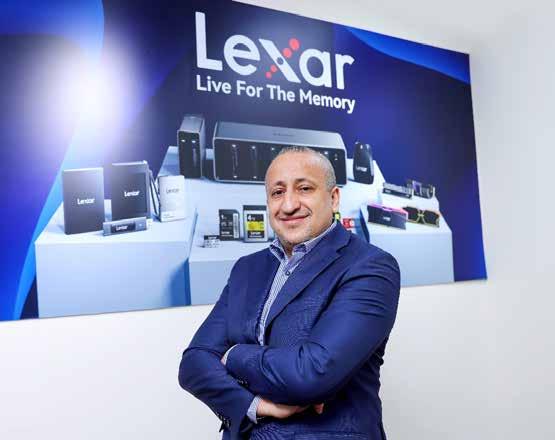
Lexar has announced a significant milestone in its expansion strategy—its products are now available in over 5,000 retail stores across the Middle East and Africa (MEA). The company registers a fivefold growth in the number of retail outlets carrying Lexar-branded products. With only weeks to go until the curtain rises on the world’s largest tech and start-up event, Lexar is gearing up to showcase its industry-leading solutions at Gitex Global 2025, (Hall 1, Stand H1-25), highlighting cutting-edge innovations tailored for photographers, gamers, and content
creators in the Middle East and across the region.
At the heart of Lexar’s retail expansion strategy is ‘The Lexar Way’ – a unique delivery method where the company actively works to foster a collaborative ecosystem, empowering partners throughout the region with the necessary resources, tools and support to accelerate product and channel market disruption. Lexar’s impressive growth and demand in the last three years, is a direct result of its unwavering focus on technological innovation and its efforts to ensure partners are well-equipped
to stay on top of trends and respond proactively to changing customer expectations.
“For nearly 30 years, Lexar has been empowering the world with memory innovations, helping transform the daily lives of photographers, videographers, gaming enthusiasts, and creators while shaping the future of digital storage. Our rapid growth in the Middle East and Africa region reflects both the rising demand for reliable memory solutions and the strength of our partnerships with leading retailers. The
steady expansion of our retail footprint is a demonstration of our longterm commitment to the region, which has evolved to become a thriving hub for imaging innovation and creativity,” said Fissal Oubida, General Manager –Middle East, Africa & India, Lexar.
‘The Lexar Way’ focuses on continually redefining the company’s approach to collaborating with its partners, using a mix of education, consumer engagement and incentivised campaigns to build brand awareness and boost business agility and resilience. To support its channel network, Lexar conducts multiple partner training seminars and roadshows to ensure that partners have the tools and information they need to stay ahead in a dynamic market environment.
“Lexar will continue to aggressively consolidate its dominance in Middle East and Africa regions. Our presence in the region represents a cornerstone of our continued success and growth globally. We’re looking forward to bringing our award-winning line-up of innovative professionalgrade memory solutions to Gitex Global – with plans to further extend our presence, explore new collaborations, enhance local partnerships, and introduce new product offerings tailored to meet the needs of MEA consumers,” added Oubida.
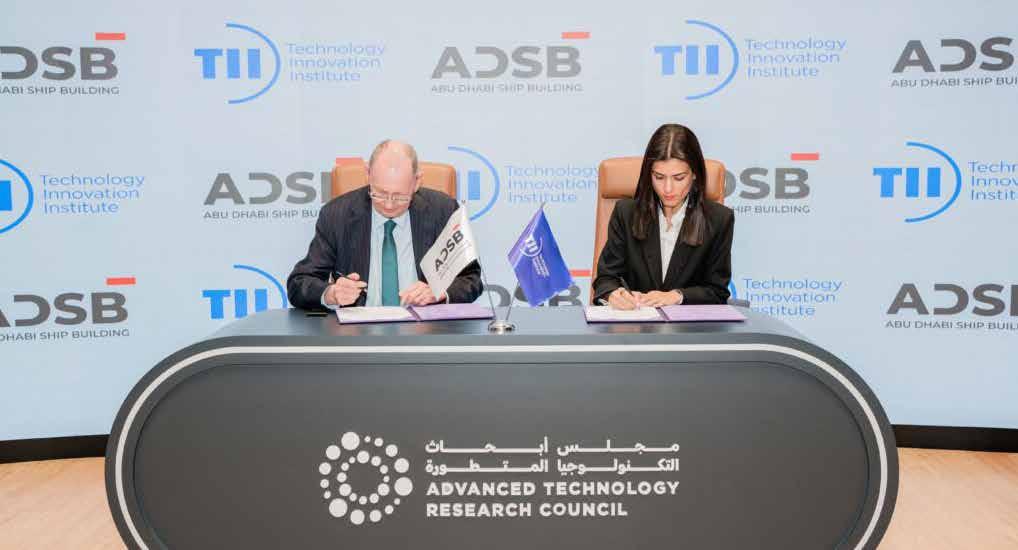
The Technology Innovation Institute (TII), the applied research arm of Abu Dhabi’s Advanced Technology Research Council (ATRC), has signed a collaboration agreement with Abu Dhabi Ship Building (ADSB) to expand capabilities in naval maritime technologies. The agreement includes the launch of a Naval Technology Innovation Hub – an advanced facility that will fast-track research, integration, and testing of next-generation naval technologies, including autonomy, propulsion, materials, and secure systems.
Under the agreement, the two organisations will advance joint initiatives to accelerate innovation in the naval domain. This includes exploring emerging technologies such as quantum magnetic sensing, computational fluid dynamics (CFD) inspired by quantum principles, underwater, autonomous, robotic technologies and advanced materials
like anti-corrosion coatings and composite armoring. The partnership also supports projects in marine autonomy, unmanned underwater systems, diver communication and detection solutions, as well as nextgeneration sonar and hull treatment techniques. Together, both entities will contribute technical expertise, test facilities, and integration capabilities to bring these innovations from research to real-world application.
Central to the collaboration is the Naval Technology Innovation Hub, a jointly operated and co-funded laboratory environment dedicated to co-developing, evaluating, and integrating cutting-edge maritime systems. The Hub will provide realworld testbeds, a shared technology roadmap, and a framework for talent and knowledge exchange. The Hub will pave the way forward in creating a unique collaboration model offering top local and global naval players the
opportunity to test and validate naval technologies and maritime solutions in real conditions, supported by Subject Matter Experts.
The Hub builds on previous successful collaboration between TII and ADSB, notably autonomous and stealth unmanned surface vehicles – an unmanned surface vehicle enhanced with stealth and autonomy features, and the 170 M-detector unmanned vessel, primarily operating in mine countermeasure and oceanographic activities. The project combined TII’s integration expertise and ADSB’s strengths in design and testing – demonstrating the type of collaboration the new Hub will now formalise and expand.
This collaboration underscores Abu Dhabi’s strategic commitment to building robust, innovation-led defence capabilities and highlights TII’s and ADSB’s roles as pioneers in advancing next-generation naval technology.


As AI becomes an integral part of business operations, channel partners face new ethical challenges. We gathered perspectives from industry leaders to explore how partners can balance innovation with responsibility, safeguard customer trust, and shape the future of AI-driven business relationships
Narayanan Venkataraman, Head of Channel - Middle East, Saudi Arabia, Africa, HP
The biggest ethical challenges lie in maintaining transparency, protecting data privacy, and ensuring fairness in how AI solutions are deployed. As AI capabilities move from the cloud into the device through innovations like next-gen AI PCs with dedicated NPUs, the channel must ensure these tools are secure, accountable, and respectful of individual rights. Another challenge is the pace of AI innovation, which often outstrips partner readiness. Without the right knowledge and frameworks, unintended bias or misuse can creep in.
At HP, we follow clear AI governance principles, focused on trust, safety, and accountability, to help partners navigate these issues responsibly. We see responsible AI not only as a technical matter but as a business imperative that underpins the long-term health of the ecosystem.
Balancing innovation with ethical considerations
Balancing innovation with ethics starts with equipping partners to make informed choices. That is why programmes like HP’s Future Ready AI MasterClass and Amplify AI are so important, as they give partners realworld use cases, technical pathways, and the ability to guide customers with confidence.

Responsible deployment means embedding ethical design principles from the outset, safeguarding data, ensuring fairness, and providing explainability. As AI becomes more central to business decision-making, partners must shift from just selling technology to helping customers understand its impact on workflows, employees, and society. HP’s approach through outcome-based selling tools, ROI calculators, and vertical playbooks ensures that innovation is matched with responsibility. That balance is where sustainable trust and growth are built.
In the near future, ethical AI will be a central factor in how customers choose their long-term technology partners. As AI becomes more influential in decision-making, customers will expect safeguards around data use, fairness in outcomes, and clear accountability. Trust will shift from being an assumption to being earned through transparency and responsible practices. For partners, this means evolving from transactional roles to consultative advisors, helping customers navigate both opportunity and risk.
At HP, we support our partners with frameworks, enablement, and continuous education—so that they can reassure customers that performance goes hand-inhand with integrity. When customers see that partners are mindful of impact, not just outcomes, relationships deepen, and trust becomes the differentiator.
ElOuazzani, Senior Regional Director, META, SentinelOne
ethical hurdles in AI
One of the major hurdles when it comes to AI in the channel ecosystem is transparency. Partners must take the initiative to make sure that customers understand AI’s decisionmaking processes. This helps in staying away from the “black box” problem that affects trust. Another challenge is how AI could be biased. AI models trained on incomplete or inaccurate data can cause discrimination in hiring processes, credit scoring, or customer profiling, which in turn makes partners accountable for unintended harm.
Data privacy and sovereignty are also crucial factors, especially in the Middle East region, where regulatory frameworks are changing. Channel players should take steps to proactively protect sensitive data while complying with jurisdictions. Another challenge is responsibility and liability. When AI-driven responses do not generate the desired results, it is difficult to determine whether the accountability lies with the vendor, distributor, or reseller. Lastly, the skills gap causes an ethical divide. Some partners might use AI without fully understanding its capabilities and potential. This can lead to risks of misuse.
Embedding responsibility into AI deployment
For this, partners will require a responsible AI mindset from the very beginning. They should start by embedding
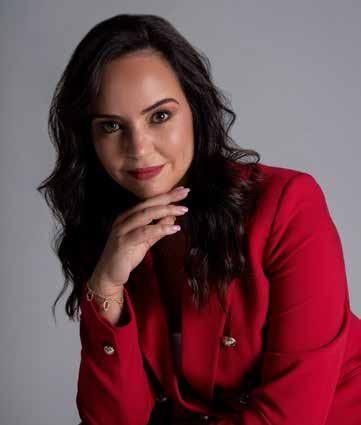
transparency into all their solutions, which involves explaining system processes and limitations. Establishing governance frameworks aligning with global standards, such as the EU AI Act or local data protection laws, aids in making sure that compliance and innovation happen simultaneously. Partners should also take steps to invest in ethical training and awareness for their teams. This provides the assurance that sales, presales, and delivery staff are well aware of AI’s boons and banes. Bias testing and monitoring are other significant factors that must be considered to ensure fairness and create trust. Lastly, collaboration with vendors and customers is essential to establish accountability boundaries, to ensure that outcomes are a shared responsibility. Channel partners can definitely drive innovation while ensuring long-term trust and sustainability by being agile in AI adoption and disciplined in ethical oversight.
Building trust and strengthening customer bonds through AI ethics
AI ethics will be the foundation of trust in the channel ecosystem. Customers will mostly pick partners who are capable of visibly showcasing the responsible use of AI. This includes transparency in decision-making processes and strict data protection practices. Using AI ethically will change the perception of it being a “black box” into a trusted growth enabler. Those partners who take ownership and proactively address issues of bias, accountability, and compliance will stand out from the rest and be seen as trusted advisors, rather than just solution providers. From now on, AI will forge stronger customer relationships, ensure loyalty, repeat business, and support sustainability for channel partnerships.
Uncovering ethical pitfalls in AI
AI systems often carry hidden biases and make decisions we can’t easily explain. When partners use fragmented or poorly managed data, these problems get worse. Without proper oversight, AI can produce unjust outcomes that will lead to negatively affecting business relationships and break compliance rules, damaging trust throughout the entire channel.
Responsible innovation through ethical governance Partners need strong governance frameworks built around transparency and explainability. They must ensure privacy protection and create audit trails for every decision. When you combine this with unified data standards and real-time tracking, you can innovate responsibly while delivering genuine value and maintaining ethical standards from day one.
Ethical AI as a trust differentiator Trust will define success in tomorrow’s channel ecosystem. Customers increasingly want partners who can explain their AI decisions and show clear accountability. Ethical AI practice, transparent data handling, consistent standards, and responsible governance—will separate trusted partners from the rest in our rapidly changing regulatory environment.
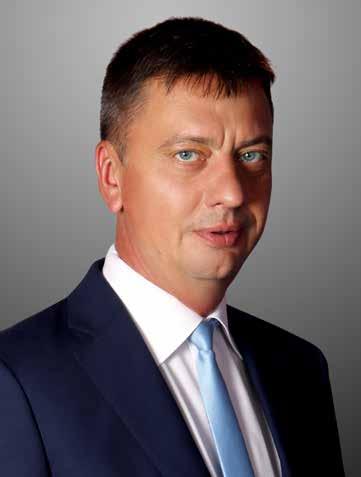

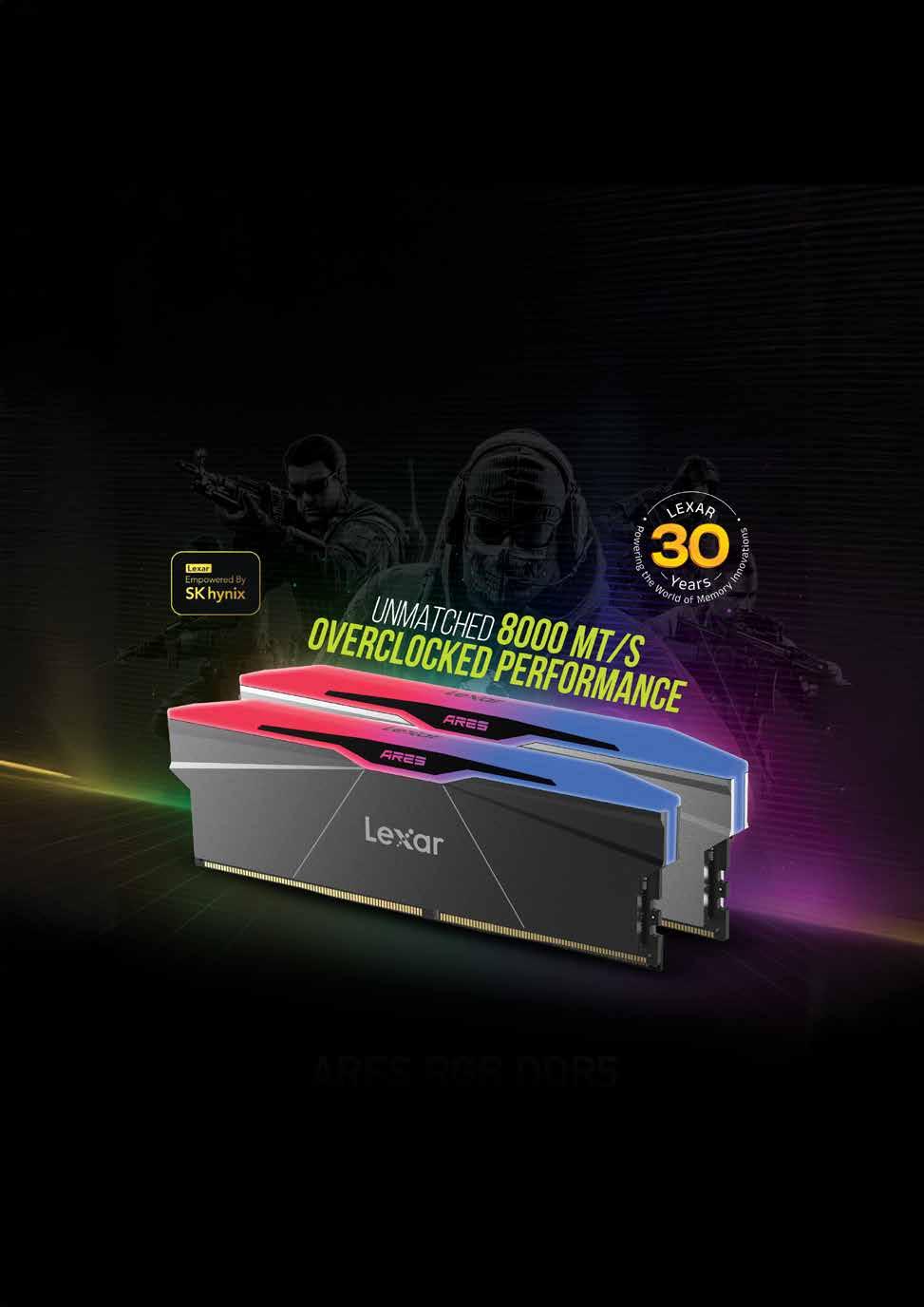




Asif Khan, Managing Director, Quantum Edge Distribution, discusses how strategic localisation, digital innovation, and ecosystem partnerships are reshaping the rules of IT distribution in MEA and driving the next phase of channel growth
Across the Middle East and Africa, distribution has become a strategic lever in the region’s digital economy.
It’s about cultivating ecosystems, enabling partners, and shaping technology decisions that will define future growth.
Quantum Edge Distribution, steered by Managing Director Asif Khan, is taking that mandate seriously—bridging global vendors with regional opportunities and helping partners seize the momentum in cloud, cybersecurity, and digital infrastructure.
From services to distribution leadership
Quantum Edge’s story begins with a strong foundation in service delivery. For more than a decade, the company has built its reputation on providing dependable, high-quality services across industries. This history of reliability and adaptability became the springboard for its evolution into value-added distribution. This legacy of service now underpins its go-to-market model, which is built on trust, agility, and partner enablement.
“Over the years, we’ve expanded from service delivery into becoming a trusted leader in IT
distribution,” says Khan. “Our focus has always been on excellence, innovation, and reliability. That’s what enabled us to transition successfully and build a brand that partners and vendors trust.”
This approach has translated into tangible results. Quantum Edge has completed more than 100 projects, consistently delivering solutions that drive measurable business outcomes. Its technical team holds more than 200 + certifications, underscoring its commitment to staying ahead of industry advancements. And with a 24/7 technical support framework, the company ensures partners are never left without guidance or assistance.
Quantum Edge Distribution has staked its growth strategy on the Middle East and Africa, viewing the region as both its priority market and its biggest opportunity. The region blends ambitious Gulf initiatives like Dubai Smart City and Saudi Vision 2030 with rapidly digitising African economies driven by mobilefirst innovation. For IT distributors, this combination offers significant growth potential but also requires navigating varied regulations, infrastructure maturity, and partner ecosystems.
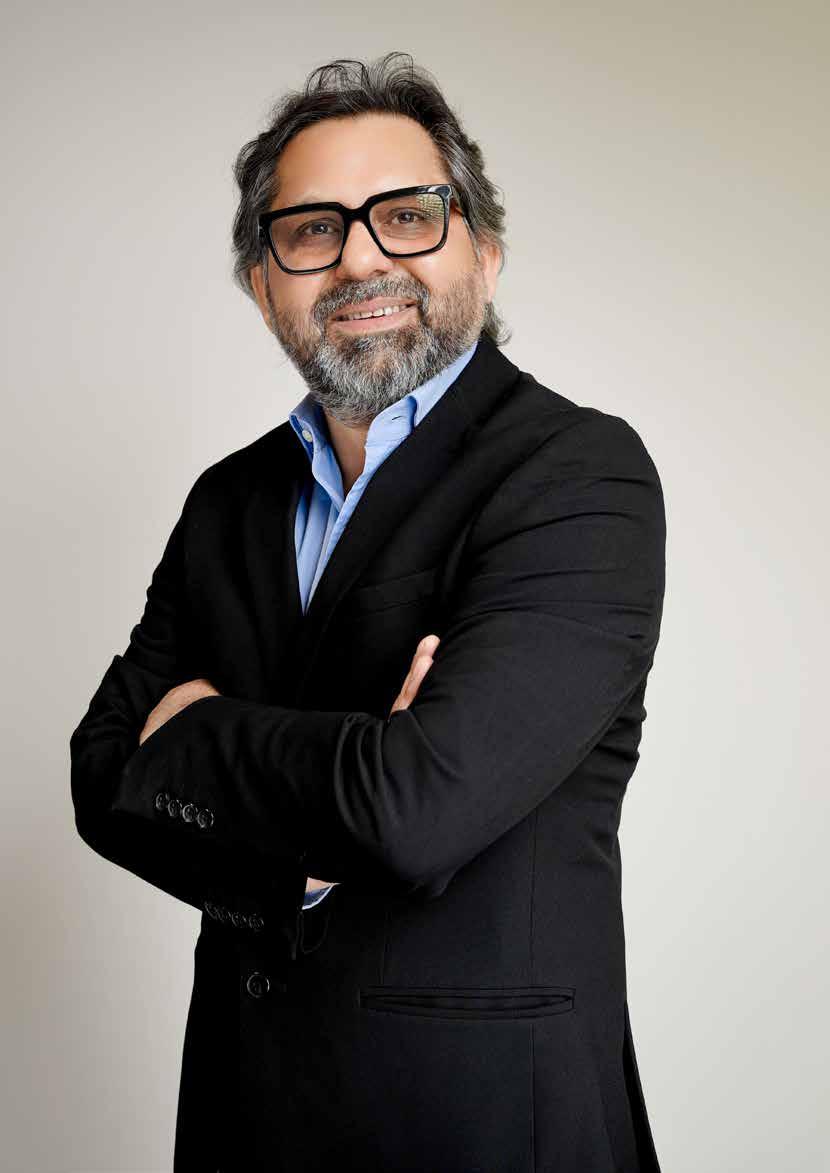
“On one hand, you have government-backed projects like Dubai Smart City or Saudi Vision 2030 fueling demand for AI, IoT, and cloud. On the other hand, distributors must contend with fragmented markets, varying regulations, and infrastructure gaps in places like Sub-Saharan Africa. To succeed, we must bridge these divergent conditions with strategies that are both global and deeply local,” explains Khan.
This environment is also reshaping the core dynamics of the channel. As cloud and SaaS adoption accelerates, businesses are moving away from traditional hardware-centric models. This shift is reducing dependence on physical infrastructure and increasing the need for flexible, scalable managed services.
Channel partners are now expected to deliver ongoing support, optimisation, and value-added services rather than one-time product sales. Vendors are pressuring distributors to step into a more strategic role –managing ecosystems, handling compliance, and providing last-mile support. Meanwhile,
currency volatility and political instability in parts of Africa add to the complexity.
In response to shifting market dynamics, Quantum Edge has taken a strategic approach to revamp its go-to-market model. The company is realigning its offerings to better meet evolving customer demands, enhancing its service capabilities, and embracing more agile, valuedriven engagement strategies to remain competitive. Moving beyond a traditional, transactional view of distribution, Quantum Edge is developing a model that prioritises efficiency, customercentricity, and service excellence. Operational improvements are being powered by digitised supply chains, AI-driven forecasting, and increased automation.
Simultaneously, the company is elevating the customer experience through faster, more responsive support and seamless digital interactions, fostering stronger customer loyalty.
The distributor is also pursuing selective market expansion— deepening its GCC presence while opening opportunities
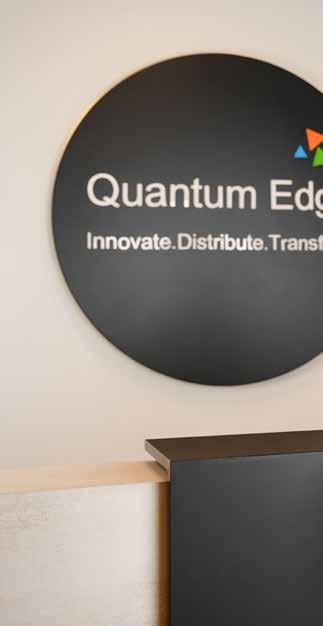
On one hand, you have governmentbacked projects like Dubai Smart City or Saudi Vision 2030 fueling demand for AI, IoT, and cloud. On the other hand, distributors must contend with fragmented markets, varying regulations, and infrastructure gaps in places like Sub-Saharan Africa. To succeed, we must bridge these divergent conditions with strategies that are both global and deeply local”
in underpenetrated African markets—while adapting its portfolio to encompass cloud, cybersecurity, IoT, and AI. To stand out, Quantum Edge is pushing further into value-added services such as consultancy, managed services, and financing, and differentiating itself through exclusive partnerships and datadriven strategies.
Quantum Edge’s refreshed GTM strategy is designed to align with the shifting demands of the MEA channel. The approach rests on four pillars: digital transformation, serviceoriented expansion, ecosystem partnerships, and localisation.
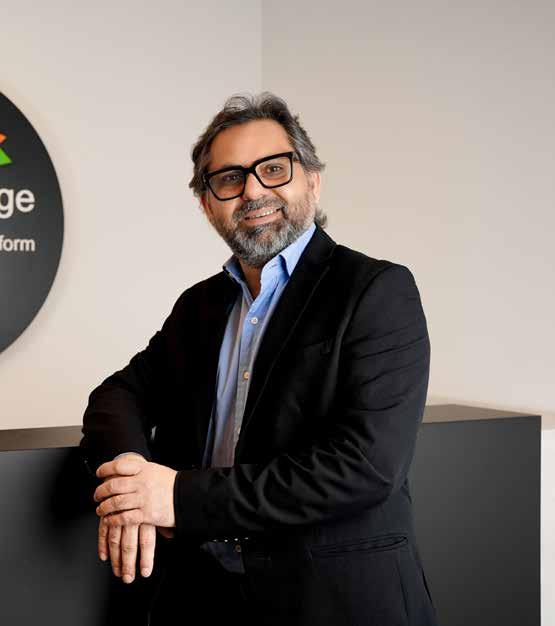
To support this, Quantum Edge is building a digital marketplace portal that allows partners to check inventory, view dynamic pricing, and transact seamlessly. AI and predictive analytics are being applied to sharpen demand forecasting, optimise stock levels, and minimise losses from unsold inventory, ensuring greater efficiency across the supply chain.
“We’re no longer just distributors,” Asif says. “We are solution providers.” The company is investing in systems integration, partner training, cybersecurity services, and as-aservice distribution models that bundle hardware and software
into flexible packages.
Quantum Edge is collaborating with fintechs to extend credit lines to SMEs, partnering with hyperscalerrs such as Amazon Web Services (AWS), Microsoft, and Google Cloud to deliver localised services, and aligning with government agendas for e-governance and smart cities.
Regional hubs located in the UAE, Saudi Arabia, Kenya, Johannesburg, and Morocco will enhance logistics capabilities. Adaptations are being made to address language, payment preferences, and cultural nuances across North Africa and Sub-Saharan Africa, ensuring
relevance in both Francophone and Anglophone markets.
Flexible pricing models, including subscription and pay-as-you-go options, are key to enabling SMEs and startups to access advanced technologies without heavy upfront expenses.
The MEA region remains a highgrowth arena. Africa’s digital economy is booming, fueled by mobile-first adoption, fintech innovation, and e-commerce expansion. Sub-Saharan SaaS markets are projected to grow at double-digit rates, creating heightened demand for IT infrastructure.
In the GCC, government-backed digital agendas are spurring demand for AI, cybersecurity, and IoT ecosystems. Emerging verticals like healthcare (telemedicine), education (e-learning), and financial services (fintech) are all driving demand for advanced IT solutions.
“From Africa’s fintech boom to the Gulf’s smart cities, the opportunities are immense,” Khan notes. “But they must be matched with strategies that address regulatory complexity, infrastructure gaps, and capital constraints.”
Quantum Edge acknowledges that success won’t come without obstacles. Regulatory variability across MEA nations, a shortage of cybersecurity and AI specialists, political instability in some markets, and capital limitations for SMEs all present hurdles.
Khan explains: “We need to address these challenges with resilient operations. That means diversifying logistics, hedging against currency fluctuations, and building training academies to tackle the skills gap.”
Recognising these pressures, Quantum Edge is leaning heavily on emerging technologies to create resilience and unlock new value for partners. The company

views advanced analytics, AI, and robust cybersecurity not just as tools for efficiency, but as essential levers to navigate market complexity and deliver consistent support across diverse geographies.
“Predictive analytics will optimise stocking, AI-driven engines will match SMEs with solutions, and intelligent chatbots will provide multilingual support in Arabic, French, and Swahili,” says Khan.
He further notes that as cyberthreats intensify across the region, the distributor is bundling cybersecurity services and forging partnerships with leading security vendors to ensure SMEs receive enterprise-grade protection without prohibitive costs.
But technology alone isn’t enough to drive sustainable growth. One of the biggest
barriers for SMEs remains access to capital, and Quantum Edge is positioning itself as a financial enabler within the channel. By acting as an intermediary between global vendors and local resellers, the company can extend credit lines and work with African fintechs to deliver micro-financing for small-scale IT purchases. Usage-based pricing and subscription models are also easing the upfront burden for startups and SMEs, making advanced technologies more attainable.
“This financial enablement not only drives sales but also builds loyalty,” says Khan. “When you help partners grow, they stay with you.”
Equally critical is the development of talent and localisation strategies to ensure long-term competitiveness. The future channel workforce looks
very different from traditional distribution: cloud architects, cybersecurity analysts, and AI specialists are now indispensable. To meet this demand, Quantum Edge is rolling out structured training programmes, certifications, and enablement workshops aimed at upskilling partners and strengthening local expertise. Governments across the region are also demanding greater localisation, and Quantum Edge is aligning with initiatives like Saudisation, Emiratisation, and African digital skills programmes—moves Khan says are not mere compliance measures, but investments in building sustainable digital ecosystems.
“Developing local talent is fundamental for digital economies to thrive,” Khan says. “When skills are nurtured within the region, innovation takes root locally,

partnerships deepen, and growth becomes self-sustaining.”
To address the region’s regulatory hurdles, infrastructure gaps, talent shortages, and financing constraints, Quantum Edge has shaped a marketby-market strategy that turns these challenges into growth opportunities. By tailoring its go-to-market approach to local realities, the company ensures its partners can compete and thrive across MEA’s diverse landscapes.
Quantum Edge tailors its go-to-market strategy to each regional cluster. In the GCC, the focus is on smart cities, AI, and cybersecurity, aligning with government initiatives and integration partners driving digital transformation. In North Africa, the emphasis is on bilingual platforms and affordable SaaS solutions to support educational technology
and expand digital access. Across Sub-Saharan Africa, where mobile-first adoption and fintech lead, Quantum Edge prioritises micro-financing and IoT solutions to serve rapidly digitising economies. In frontier markets with limited infrastructure, the company promotes accessibility through affordable devices and bundled connectivity, alongside partnerships that foster digital literacy.
This tailored approach is designed not only to solve today’s operational and market challenges but also to prepare Quantum Edge for the shifting dynamics of MEA’s distribution landscape. By embedding flexibility into its strategy, the company positions itself to respond effectively to whatever shape the market takes next.
“Looking ahead, three scenarios could shape the region’s distribution landscape,” says Khan. “In the best case, distributors evolve into true ecosystem orchestrators. A middle path would see uneven growth across markets, while the worst case is that those who fail to adapt will lose ground to global players.”
Developing local talent is fundamental for digital economies to thrive. When skills are nurtured within the region, innovation takes root locally, partnerships deepen, and growth becomes self-sustaining”
Framework and roadmap
Quantum Edge’s growth framework emphasises five components – a digital core, a value-added services layer, regional customisation, a partnership web, and resilient operations. The roadmap begins with short-term priorities over the next one to two years, including rolling out digital sales portals, deploying AI-driven supply chains, and cementing financing partnerships. In the medium term (three to five years), the company aims to establish regional data centres, expand consultancy offerings, and launch cloud marketplaces. Over the long term (five years and beyond), Quantum Edge envisions evolving into a full ecosystem orchestrator—connecting vendors, governments, and enterprises— while driving innovation through R&D with universities and startups.
The evolving landscape of IT distribution
“The future of distribution in MEA is not transactional. It is about becoming ecosystem orchestrators, enabling digital transformation, and driving innovation alongside partners,” says Khan.
Quantum Edge’s redefined GTM strategy, grounded in digital transformation, services, financial enablement, and talent development, sets a blueprint for its continuous success. With disciplined execution and deep regional knowledge, the company is positioning itself as a catalyst for MEA’s digital future.
“As we look ahead,” Khan concludes, “our goal is simple: empower our partners, adapt with agility, and create long-term growth for the entire channel ecosystem. That’s what redefining the go-to-market strategy really means.” By aligning its go-tomarket with MEA’s unique needs, Quantum Edge ensures long-term growth for both itself and its partners.
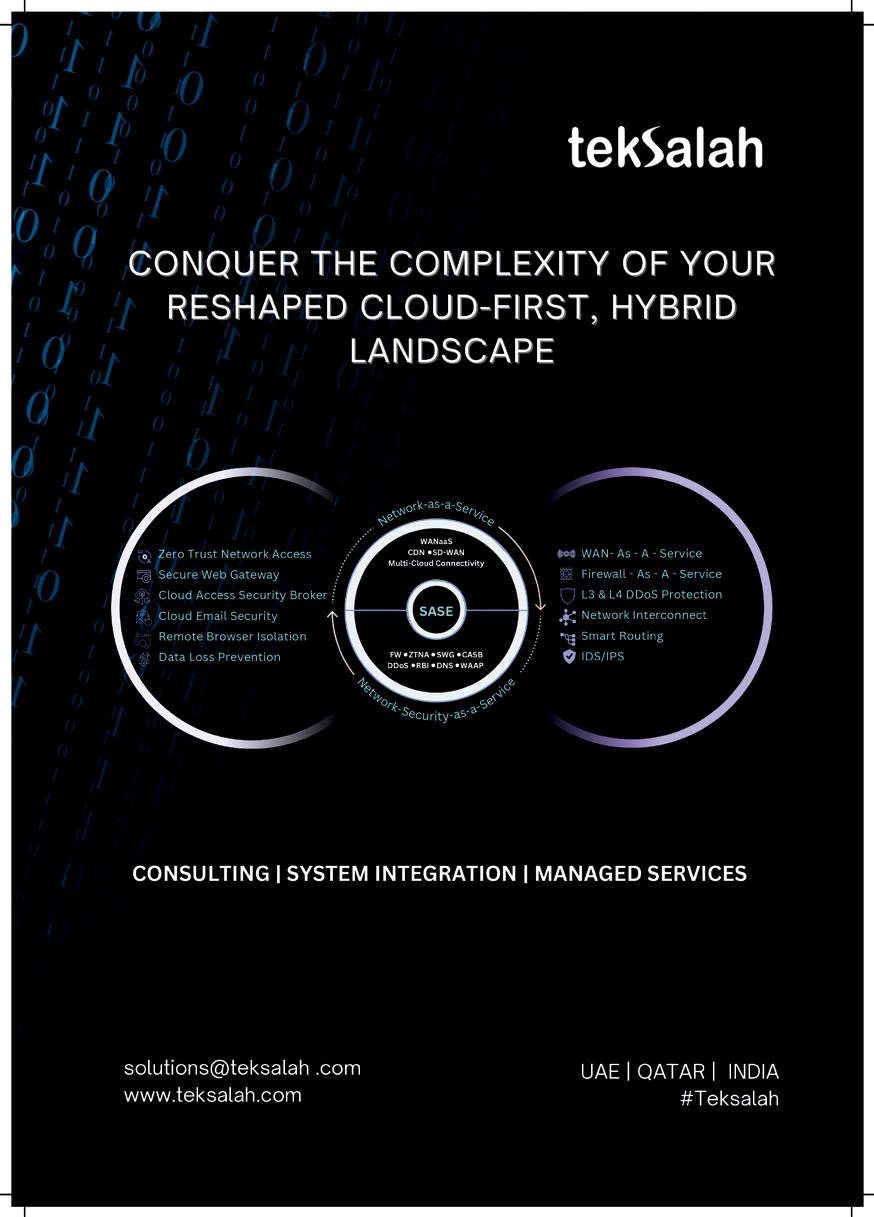

Channel partners are increasingly tasked with balancing the demand for cutting-edge, AI-powered devices with the rising interest in sustainable, refurbished, and eco-friendly hardware. We explore how distributors and resellers are shaping these diverging value propositions, advising customers, and driving adoption in a rapidly evolving market
As technology evolves, channel partners in the Middle East and Africa face a dual challenge: delivering AI-powered, high-performance devices while responding to growing sustainability expectations. Raghav Koorichh, Director – CSG Category and Product, CEEMEA, Dell Technologies,
explains, “The device market is evolving rapidly as partners face a dual challenge: delivering AI-powered performance while meeting sustainability expectations. Industry data shows the refurbished computers and laptops segment alone is set to grow from US$9.6 billion in 2025 to US$15.3 billion by 2030, reflecting a 9.8 per cent CAGR.
Governments across the region are tightening regulations around e-waste and circular economy practices.”
Koorichh cites Saudi Arabia as an example: “The Saudi Green Initiative and SIRC are investing in recycling, including electronic waste, as a key part of Vision 2030. Corporate sustainability initiatives are driving partners to adopt greener solutions without compromising on innovation.” Dell has responded with AI-ready workstations that incorporate recycled plastics, low-carbon aluminium, and energy-efficient architectures. “With recycled materials, energy-efficient components, and modular designs that enable easier upgrades and repairs, Dell is helping partners address both performance and sustainability in a meaningful way,” he adds.
Beyond new hardware, Dell’s refurbished hardware programmes offer AI-capable devices that meet performance requirements while supporting circular economy initiatives. Koorichh notes, “Building on our circular innovation leadership, our new portfolio focuses on innovative modular design and the increased use of recycled, low-emissions, and renewable materials in products and packaging. New technology innovations in battery chemistry also allow the new Dell Pro and Dell Pro Plus batteries to use up to 80 per cent less cobalt and reduce dependence on critical minerals.” AIenabled solutions like Dell Optimiser further support sustainability by improving device performance, battery life, and energy efficiency, making devices smarter and greener.
Customer demand reflects this convergence. “We’ve observed a clear shift toward energy-efficient, longerlasting devices that align with ecoconscious IT strategies,” Koorichh says. “At the same time, demand for smarter devices powered by AI continues to rise. For instance, a new consumer survey by Intel reveals strong demand for AIpowered personal computers in Saudi Arabia and the UAE, with over 60 per cent of respondents saying they would ‘definitely’ purchase an AI PC.”
Lenovo echoes this sentiment. Rehbar Merchant, Head of Channel Operations & Sales Operations, Lenovo MEA, says, “At Lenovo, we see partners increasingly reframing this as a balance,


not a trade-off. Our latest devices integrate AI capabilities while leveraging recycled materials, energy-efficient components, and low-carbon manufacturing. Partners are also embracing Lenovo’s CO₂ Offset Service to meet sustainability goals without compromising performance.”
Customer priorities are shifting toward convergence. “Organisations want devices that are both intelligent and sustainable,” Merchant explains. “We’re seeing growth in AI-enabled ThinkPad and ThinkCentre models that also feature postconsumer recycled content, lowenergy certifications, and reduced packaging waste. Sustainability is no longer a secondary consideration; it’s a core buying criterion alongside performance. From enterprise to SMB, customers increasingly expect smarter devices to also deliver measurable environmental benefits, aligning with their net-zero commitments and corporate social responsibility goals.”
For distributors and resellers, the opportunity is to lead with a dual value proposition. Merchant notes, “Distributors and resellers have a unique opportunity to lead with a ‘no compromise’ message that emphasises Lenovo’s ability to deliver both cuttingedge performance and robust sustainability credentials. By showcasing Lenovo solutions that combine AI capabilities, productivity enhancements, and energy-efficient
New technology innovations in battery chemistry also allow the new Dell Pro and Dell Pro Plus batteries to use up to 80 per cent less cobalt and reduce dependence on critical minerals”
Raghav Koorichh, Director – CSG Category and Product, CEEMEA, Dell Technologies
position themselves strongly by showing how advanced technologies and sustainable practices work together to create value. For example, showcasing AI-powered tools that boost productivity while optimising energy use, emphasising AI in extending device lifecycles through predictive maintenance, and promoting programmes that enable asset recovery, refurbishment, and responsible recycling.”
Merchant adds, “The channel plays a vital role as a trusted advisor, guiding customers through complex decisions that involve balancing innovation, cost, and environmental impact. Lenovo equips its partners with tools like the Sustainability Calculator and lifecycle assessments, which provide clear data on device performance, total cost of ownership, and environmental footprint. Education and transparency are key, and Lenovo 360 Circle supports partners by offering training, insights, and community engagement that reinforce the message that sustainability and innovation go hand in hand.”
designs with EPEAT Gold ratings and the use of recycled materials, partners can present a compelling dual value proposition.” Services such as Lenovo’s CO₂ Offset and Asset Recovery Services allow customers to offset emissions and manage end-of-life assets responsibly, while Lenovo 360 Circle provides partners with sustainability-focused resources, training, and community support.
Koorichh highlights the advisory role of the channel: “The channel empowers organisations to innovate confidently while advancing environmental responsibility and long-term cost efficiency. Distributors and resellers can
Ultimately, the channel sits at a crossroads, advising customers, bundling services, and driving adoption. The PC refresh cycle presents a powerful opportunity to grow business and deliver value. Koorichh sums it up: “While this market is evolving at a fast pace, the opportunities for businesses to capitalise on AI, modernise IT infrastructure, and lead sustainable innovation have never been better.” Merchant concludes, “By delivering service-led offerings and datadriven recommendations, the channel ensures that customers see sustainable technology as a strategic investment that delivers long-term value for both business and planet.” Through AI-enabled devices, modular designs, refurbished programmes, and advisory-led guidance, channel partners are helping businesses embrace smarter technology while advancing environmental responsibility, bridging the gap between performance and sustainability.
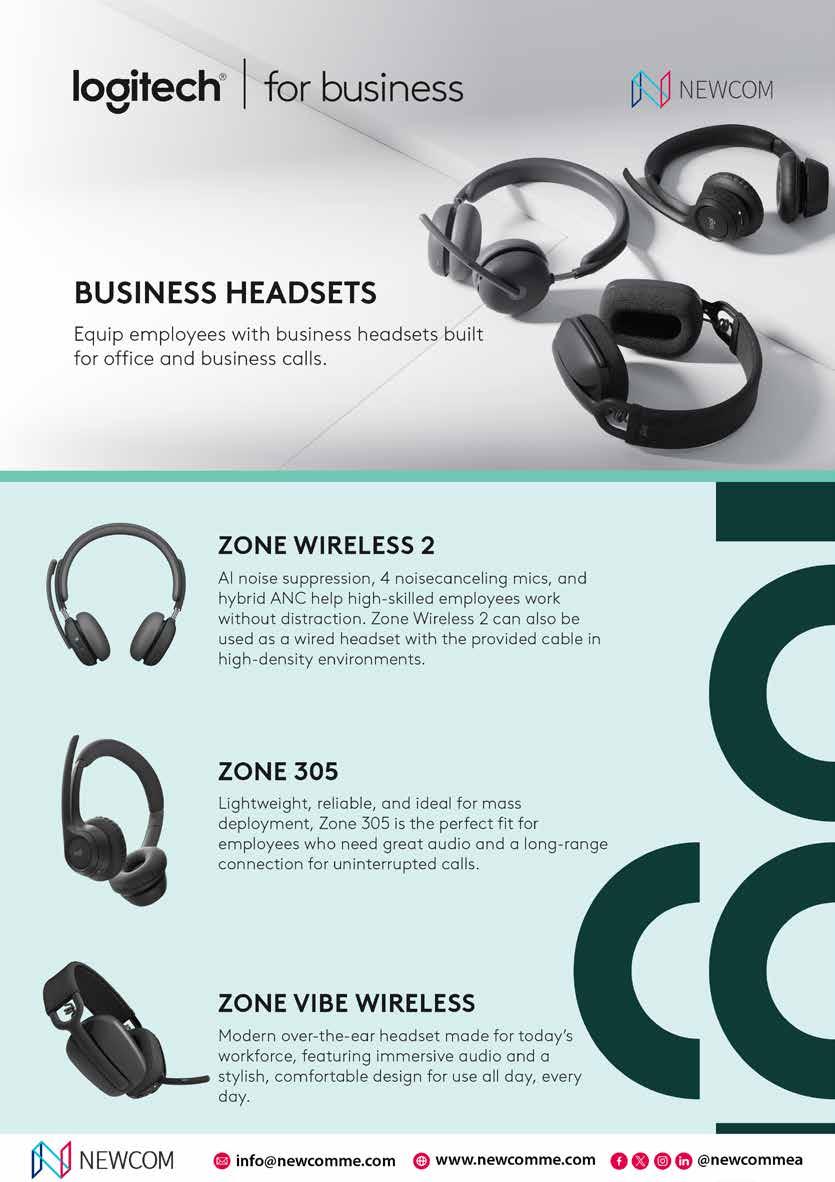
Renton D’Souza, Vice President, Comstor MEA, explains how they are helping Cisco partners in MEA unlock new revenue streams and scale managed services through training, enablement, and strategic initiatives
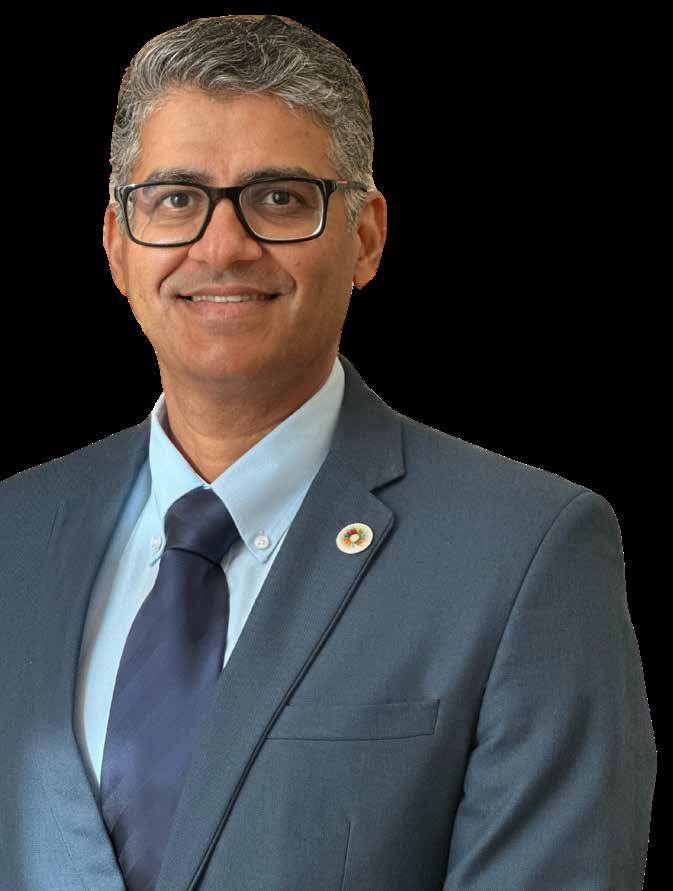
How is Comstor helping Cisco partners in MEA tap into new growth areas like AI, cybersecurity, and hybrid cloud?
Comstor enables partners to tap into AI-native solutions and hybrid cloud architectures by providing access to Cisco’s advanced technologies and integrated offerings. Working alongside Cisco, Comstor delivers security selling methodologies, zero trust frameworks/best practices as part of our SASE enablement sessions, and proactive threat intelligence best practices as advocated by Cisco. These help partners address complex, multi-cloud environments and evolving cyber threats. Notably, Comstor’s largest-ever security enablement programme gives partners exclusive access to certifications, 360 training, and dedicated deal concierge services for customised support.
What unique value does Comstor bring to partners compared to other distributors in the region?
Comstor stands out as a Cisco-exclusive distributor with an unparalleled footprint across the MEA region. We have over 20 offices and presence in a further 20 plus countries, allowing our partners to gain from the in-depth knowledge we have of the region. Partners benefit from tailored credit as a service offerings, comprehensive technical support, robust logistics allowing access to our European stocking hubs, and exclusive marketing assets. Comstor’s role as a true extension of Cisco helps accelerate adoption, streamline deployments, and optimise customer engagement.

How are you enabling partners to shift toward recurring revenue and services-led models with Cisco solutions? To support a shift towards recurring revenue and services-led models, Comstor has launched managed SOC and XDR solutions that allow partners to offer subscriptionbased, scalable security services to end-users. These initiatives— including white-labelled solutions and AWS Marketplace enablement programmes- provide partners with frictionless paths to sell advanced Cisco services, build customer loyalty, and capitalise on growing demand for MSSP models across MEA.
How is Comstor investing in partner enablement in MEA?
Training and certifications are at the heart of Comstor’s investment in partner growth. Comstor delivers enhanced Cisco Secure 360 training, access to a vast team of cybersecurity experts, and comprehensive partner enablement programmes. Our quarterly events, lunch’n’learns and dedicated remote labs equip partners with the skills and knowledge required to achieve specialised Cisco certifications, accelerate solution adoption, and maximise technology investments for their customers.
Comstor’s largestever security enablement programme gives partners exclusive access to certifications, 360 training, and dedicated deal concierge services for customised support”
What role do regional markets play in your growth strategy?
Regional markets in MEA offer us an opportunity to drive value and grow alongside our partners, to think global and act local. We offer our partners expertise and the ability to stay compliant with local
laws and regulatory requirements when they partner with us across MEA. Our continued investments in expanding our footprint regionally is a testament to our appetite to grow business in the MEA region.
Looking ahead, what will be your top priorities to strengthen Cisco’s partner ecosystem in MEA?
Looking ahead, Comstor will focus on helping partners expand their recurring revenue streams through initiatives that drive awareness of Cisco tools like PXP (Partner Experience) and LCI (Life Cycle Initiative). Partners who focus will win in the long run.
We also see huge opportunities for partners in Managed services and cybersecurity, and will drive awareness of our programmes like the Secure 360 training and the MSP Expressway. These programmes will help our partners specialise and build out managed services offerings that they can then take to market.
The new Cisco partner 360 programme is key to it all. Partners that understand the programme and align themselves to it will find themselves winning deals, being profitable and growing their Cisco practice.
Ziad Nasr, General Manager, Acronis Middle East, shares how they equip partners to meet growing cybersecurity demands efficiently while turning services into recurring, strategic revenue streams

Can you share insights on the core philosophy behind Acronis’ channel strategy?
We’ve always believed that our success depends on our partners’ success. In simplest terms, our core philosophy is about making life easier for them. Cybersecurity today is incredibly complex, new threats appear daily, and customers expect nothing short of seamless protection. So, our strategy is focused on simplifying that complexity, giving partners the tools and training they need to scale profitably, and ensuring they can deliver true cyber resilience, not just isolated products.
That means equipping them with up-to-date knowledge through certifications, helping them adopt best practices, and making sure they can focus on what they do best, which is building strong relationships with their clients.
What are the main obstacles MSPs and MSSPs face today when trying to scale their security services?
The reality is that the biggest obstacle is resources. Building and running a 24×7 SOC is a huge undertaking. It’s expensive, it requires a team of highly skilled specialists, and let’s face it, those
skills are in short supply globally. Most partners just can’t afford that level of investment.
At the same time, they’re under pressure to cover more endpoints and deal with increasingly sophisticated threats. And they’re doing this in environments that are often messy, packed with too many tools, too much complexity, and not enough integration. That combination makes scaling without compromising service quality a real challenge.
Could you explain how the co-managed security services model operates and why it represents a compelling opportunity for partners? Co-managed security is a bit of a game-changer as it addresses the highlighted challenges. It allows partners to offer advanced services like 24×7 monitoring and incident response without having to build their own massive SOC from scratch. Essentially, it’s about sharing responsibility. The vendor provides the platform, automation, and sometimes operational support, while the partner focuses on managing the client relationship and delivering value.
What makes it so compelling is that it removes the resource barrier. Partners can compete at an enterprise level, scale quickly, and meet rising customer expectations without overstretching their teams. Plus, it creates recurring revenue opportunities, which is exactly what service providers are looking for.
With customer expectations around cybersecurity rising rapidly, how can partners
effectively meet these demands without overextending their resources?
It starts with changing the approach. Customers no longer just want to stop malware; they want full cyber resilience. That means being able to prevent attacks, detect them fast, respond effectively, and recover quickly. For partners, this requires moving away from reactive fixes and taking a more integrated, proactive stance.
The easiest way to do that without burning out the team is through consolidation. If you can guide your customers to adopt a unified platform, rather than relying on a patchwork of tools, you simplify operations dramatically. It speeds up response times, reduces the risk of mistakes, and makes it easier to deliver a consistently high level of protection without needing a huge internal staff.
Why is ongoing training so critical for MSPs and MSSPs, and what results have you seen from these initiatives?
Cybersecurity is an arms race. Threat actors don’t sit still, and neither can we. If technicians aren’t continuously learning, they’ll quickly fall behind. Ongoing training ensures they understand the latest threats and know how to apply advanced concepts like Zero-Trust or AI-driven detection in real-world environments.
The results speak for themselves. MSPs that completed Acronis Academy certifications saw, on average, a 60 per cent increase in revenue and a 40 per cent reduction in incident resolution times. That’s because training isn’t just theoretical. It makes teams more efficient, more confident, and ultimately more valuable to their clients.
How does Acronis help partners overcome tool sprawl and achieve operational efficiency?
Tool sprawl is one of the biggest pain points for service providers. When you’re stitching together

Partners can compete at an enterprise level, scale quickly, and meet rising customer expectations without overstretching their teams”
enterprise-grade security without the operational chaos.
What makes the Acronis platform purpose-built for MSPs, and how does it stand out from other vendors in terms of simplifying cybersecurity delivery?
From day one, we’ve designed our platform with MSPs in mind. That means usage-based pricing to fit their business model, automation built in at every layer to save time, and deep enablement support so they can go to market fast. Everything, from disaster recovery to AI-powered threat detection, is unified within one platform.
The key difference is that we’re not just stitching products together and calling it a solution. It’s a single, integrated system. That simplicity translates into lower costs, less risk, and faster delivery of services. For partners, that means more time spent adding value for clients and less time fighting with technology.
What trends do you see shaping the future of the MSSP model, and how is Acronis preparing partners for that future?
multiple products from different vendors, you’re creating complexity and adding risk. Our approach is to eliminate that problem by providing an integrated platform that brings together cybersecurity, backup, disaster recovery, and endpoint management in a single solution.
One agent, one console, one protection plan, that’s the model. It drastically reduces setup time and the chance of misconfiguration. And because everything is native, not bolted together with APIs, it’s more reliable and easier to manage. That’s how partners can deliver
The MSSP model is heading toward something much more strategic than it’s been in the past. We’re going to see a shift toward platform consolidation because customers want fewer vendors and more unified solutions. We’ll also see AI becoming central. And this isn’t just for detection, but for automating parts of the incident response process. And then there’s the push for a truly proactive stance, where service providers help clients anticipate risks rather than just react to them.
At Acronis, we’re preparing for this by investing heavily in AIpowered capabilities, expanding our unified platform, and doubling down on training to keep partners ahead of the curve. The goal is simple; help them move from being service providers to becoming long-term strategic advisors in an increasingly complex security landscape.

Kamal Brar, Senior Vice President, Worldwide ISV and APAC, Confluent, explains how data streaming and AI-ready insights are helping Middle East partners deliver real-time, scalable solutions that drive business transformation
Can you share insights on Confluent’s recent partner investment of US$200 million?
This investment is our boldest commitment yet to building a truly partner-first business. At its core, the US$200 million allocation is about empowering partners to succeed in the AI era by unlocking real-time data, modernising architectures, and accelerating innovation across every layer of the technology stack.
In the Middle East, where governments and enterprises are doubling down on digital transformation, partners are pivotal to delivering locally relevant, globally competitive solutions. This isn’t just about scale; it’s about creating a robust, future-ready
ecosystem. In the Middle East, where digital transformation is a national priority, from Vision 2030 to Smart Government initiatives, partners are vital to scaling locally relevant, AI-driven outcomes. A great example is our partnership with SCCC by stc, which is helping bring enterprise-grade data streaming to Saudi Arabia’s growing cloud ecosystem. We are equipping our partners with the tools, training, and go-to-market alignment they need to lead in real time and deliver the next wave of data and AI innovation across the region.
What kinds of joint solutions or go-to-market opportunities will this create for partners?
We are expanding our partner
playbook across cloud, ISV, OEM, and MSP routes to market. In the Middle East, this translates into co-innovated solutions that align with strategic regional sectors, financial services, aviation, public sector, and telecom.
Think: real-time payments with fraud protection, predictive customer experiences in travel, or AI-driven citizen services. We are also enhancing co-selling with global cloud providers and doubling down on joint demand generation with local system integrators. The opportunity here is to move from tactical engagements to repeatable, scalable solutions. The more embedded our partners become in delivering business outcomes
powered by real-time data, the more competitive we all become, together.
What does having ‘AI-ready’ data truly mean for partners and customers?
AI-ready data is not just about having vast datasets; it’s about ensuring data is fresh, trustworthy, and accessible in real time. In the Middle East, where AI adoption is accelerating across smart cities, banks, and digital services, the difference between success and stalling often lies in the speed and structure of data pipelines.
Our partners play a crucial role in modernising these pipelines. With Confluent, they can help customers transition from batch-based, siloed systems to streaming-first architectures that fuel real-time decisioning. This enables use cases like dynamic credit scoring, intelligent personalisation, and instant anomaly detection, use cases that only thrive when AI has the right data, at the right moment.
How can data streaming help partners grow in an AI-driven world?
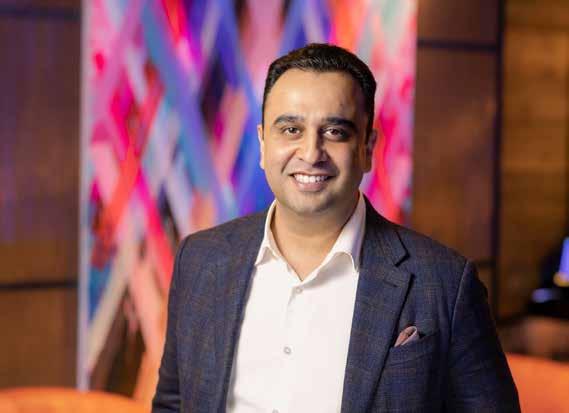
Data streaming unlocks a critical competitive edge: the ability to act on insights in the moment. For partners, this opens the door to new solution areas, AI orchestration, predictive analytics, data fabric modernisation, and even regulatory compliance automation.
In the AI era, businesses can no longer afford to lag. Whether it’s real-time onboarding in FinTech or intelligent routing in logistics, latency kills opportunity. Partners who embed streaming into their architectures help clients remove that latency, improve agility, and unlock operational efficiency. In essence, streaming is what connects raw data to real business value, making it the most strategic layer for partners to build upon in AI-first environments.
How will deeper integrations with Confluent’s platform benefit partners and customers?
Our platform has evolved well beyond Kafka. With innovations like Apache Flink integration and unified batch + stream processing, Confluent offers a
complete, cloud-native data streaming platform. For partners, deeper integration means they can build more intelligent, scalable, and resilient solutions, faster. It also simplifies developer experience, strengthens observability, and accelerates time-tovalue.
For customers, this translates to real-time use cases that are production-ready on Day 1. In markets like the UAE and Saudi Arabia, where speed to innovate is crucial, having pre-integrated, enterprise-grade data infrastructure is a game-changer. It reduces risk, shortens the build cycle, and increases trust in AI-powered decisioning.
How do you see regional system integrators driving your growth plans?
Regional SIs are essential to our vision. They understand local market dynamics, regulatory nuances, and the vertical-specific challenges that global platforms must adapt to. In the Middle East, our top-performing engagements are often driven by local SIs who pair domain expertise with our technology to deliver tailored outcomes. With this investment, we’re deepening technical training, co-innovation
programmes, and GTM alignment with our SI community, particularly in highpriority markets like the UAE, Saudi Arabia, and Qatar.
Our goal is to enable them to become data streaming leaders in their own right, capable of owning multi-milliondollar transformation projects and scaling real-time solutions regionally.
Where do you see partners adding the most value to Confluent’s growth over the next three years? Over the next three years, partners will be the key force multiplying our impact across the Middle East. As every business becomes data-led, the demand for streaming-enabled, AI-ready solutions will outpace what any single vendor can deliver alone.
Partners will be instrumental in cocreating vertical solutions, deploying at scale, and accelerating cloud migrations. We also see tremendous value in partners who integrate streaming with adjacent technologies, observability, cybersecurity, LLM orchestration, and more.
Ultimately, Confluent’s success in the region won’t just be measured by our product adoption, but by the strength of the ecosystems we help build. That’s the true north for our partner strategy.

Back for its fourth edition, the Champions of the Channel Awards will once again celebrate the personalities driving transformation, growth, and collaboration across the region’s channel ecosystem.

The Middle East’s IT channel continues to be the driving force behind digital transformation, led by individuals who champion innovation, build resilient partnerships, and enable scalable growth. To honour these remarkable leaders, the Champions of the Channel Awards returns for its fourth edition this December, shining a spotlight on the visionaries and trailblazers shaping the region’s channel landscape.
Since its inception, the awards have celebrated the personalities whose
leadership, expertise, and passion are redefining excellence. This year, the focus is sharper than ever— acknowledging those who inspire change, empower partners, and set new benchmarks across the channel ecosystem.
What awaits this year’s honourees?
• A curated, merit-driven evaluation by the editorial team of Channel Insights Middle East, ensuring fairness and credibility.
• Recognition across diverse roles, from vendor and distributor leaders
to system integrator champions and solution provider visionaries.
If you are a channel leader who has made measurable strides in driving innovation, enabling growth, or forging impactful collaborations, this is your opportunity to be recognised. Celebrate your achievements, showcase your leadership, and join the ranks of the Middle East’s channel champions.
Lookout for the nomination announcements on our website and social media channels.
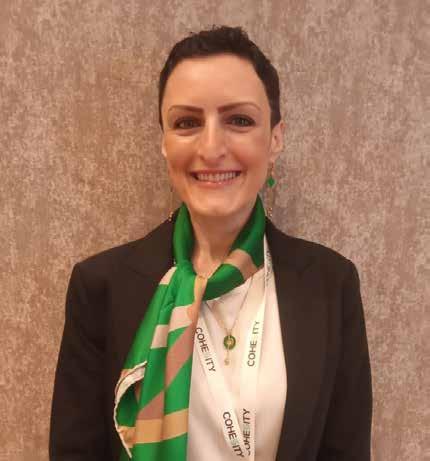
• Cohesity launched the Aspire Partner Programme, a unified framework designed for the modern partner landscape.
• The programme simplifies partner engagement, drives profitability, unlocks new revenue streams, and offers certifications and training.
• Aspire reflects Cohesity’s strong commitment to partners in the Middle East to strengthen regional cyber resilience.
• The programme covers all partner types including resell, manage, integrate, distribute, OEM, technology partners, and cloud marketplace.
• Partners can qualify for Premier, Preferred, or Associate tiers with corresponding benefits.
• An authorised distributor component adds value to Cohesity resellers.
• A centralised partner portal provides easy access to resources and enablement tools.
• Cohesity is investing in partner success across profitable growth, technical strength, and differentiation.
The Aspire Partner Programme reflects Cohesity’s deep commitment to our partners in the Middle East. Malicious cyber-attacks are a critical concern across the region, and our partners are a critical part of strengthening the region’s overall cyber resilience. Aspire provides the tools, flexibility, and future-ready framework our partners need to deliver even greater value, while enabling trusted, secure solutions that our customers can rely on.
Yudum Yonak, Senior Channel Director, International Emerging Region and LATAM, Cohesity
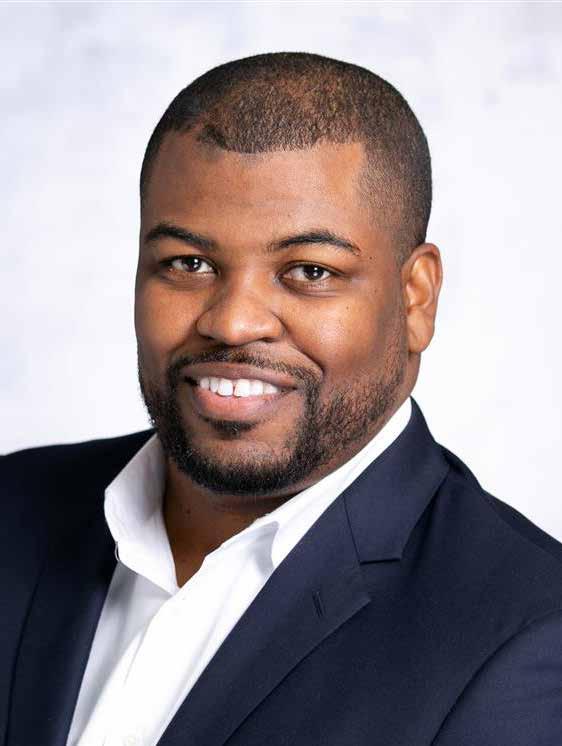
• Sophos launched a new partner programme to accelerate partner growth, deliver leading cybersecurity solutions, and create differentiation in a competitive market.
• The programme unifies Sophos’ and Secureworks’ global partners into one integrated ecosystem, building on Sophos’ award-winning programme with over 25,000 partners worldwide.
• It is designed to offer partners a flexible and profitable path to growth, whether in managed services, cybersecurity advisory, or scaling existing practices.
• By combining Sophos and Secureworks’ strengths, partners can deliver next-generation security outcomes faster, more profitably, and at scale.
• Research shows customers spend $2 on partnerdelivered services for every $1 on cybersecurity products, underscoring demand for partner-led expertise and services.
• The programme supports diverse partner models including MSPs, resellers, cyber insurance partners, and system integrators.
• Partners gain a unified portfolio across endpoint, network, email, cloud, XDR/MDR, ITDR, and nextgen SIEM, all managed through Sophos Central.
• A future-focused growth framework offers revenue multipliers, volume discounts, flexible billing, incentives, and advanced enablement through Sophos Academy.
• Enhanced resources include Partner Care, Renewal and Customer Success teams, free certification training, and new tools to deepen customer relationships.
• An AI Sales Assistant, improved portal features, guided quoting, license management, and compliance dashboards simplify how partners win and grow business.
The
new Sophos Partner Programme is designed to reflect the way partners want to build and scale their business today. It offers a flexible and profitable path to growth, whether partners are expanding their managed services, launching cybersecurity advisory offerings or scaling existing practices. With this programme, we’re doubling down on our commitment to deliver the tools, incentives and support that help our partners lead in a rapidly evolving cybersecurity market”
Chris Bell, Senior Vice President of Global Channel, Alliances and Corporate Development, Sophos

• HPE launched a unified partner programme, HPE Partner Ready Vantage, consolidating existing programmes to simplify enrollment, participation, and support across the HPE portfolio.
• The programme supports all partner types, including solution providers, MSPs, system integrators, and ISVs, enabling them to build expertise and deliver exceptional customer outcomes.
• HPE Partner Ready Vantage offers a single framework, compensation model, and consistent experience with flexible tracks for reselling, solution integration, and service delivery.
• Partners can resell the full HPE portfolio via OPEX (HPE GreenLake Flex) and CAPEX models, with dedicated centres for Compute, Hybrid Cloud, Networking, and optional specialised competencies.
• New competencies and certifications include AI solutions, Sovereign Cloud, Morpheus VM Essentials, and Aruba Networking Private 5G, helping partners differentiate and access adjacent markets.
• Partner enablement is emphasised with training, certifications, tools, and workshops to enhance capabilities and deliver superior customer outcomes.
• HPE CloudPhysics Plus and rapid migration tools help partners assess, optimise, and migrate IT estates across onpremises, multicloud, and cloud-native environments.
• AI Focus partners gain expanded reach to 20 additional countries, with access to AI readiness assessments, enablement, co-investments, and workshops integrating NVIDIA expertise.
• HPE Financial Services offers reduced-rate financing on HPE Private Cloud AI developer systems, enabling partners to spread costs over 36 months.
• HPE Smart Choice provides ready-to-go data centre solutions for SMB and mid-market customers, simplifying purchasing, accelerating sales, and expanding offerings with Compute Ops Management and Morpheus VM Essentials.
• The programme aims to empower partners to differentiate, grow revenue, build AI practices, and deliver complete, competitive solutions efficiently.
The new, unified HPE Partner Ready Vantage reflects our commitment to empowering partners and making it easier for them to differentiate with customers and grow their businesses. This new programme is simple, flexible and relevant, accelerating partners’ ability to engage with us, and deliver innovative solutions and services that provide brilliant results for their end customers”
Simon Ewington, Senior Vice President of Worldwide Channel and Partner Ecosystem, HPE
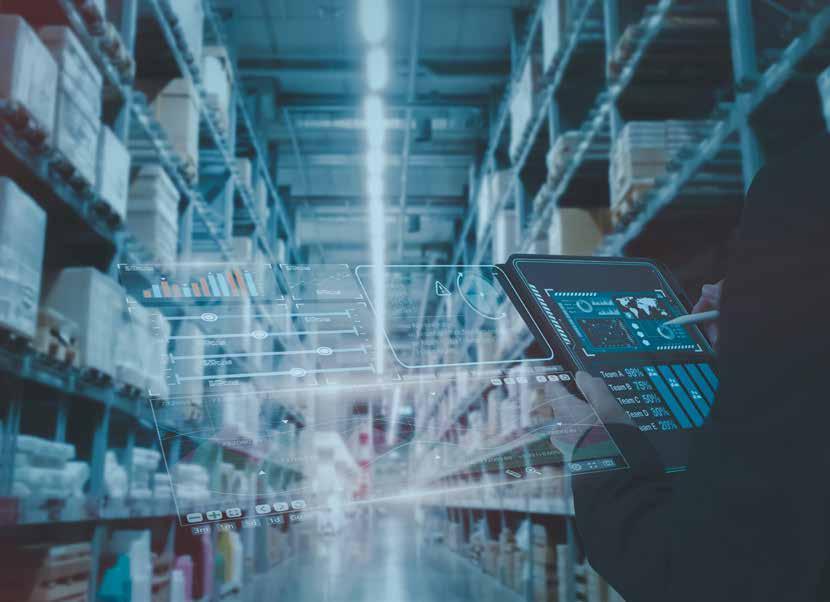
Paul Flannery, VP International Channel, Epicor, explains how embedded intelligence and strong partner ecosystems are powering the next wave of ERP adoption in the Middle East
What’s driving the ERP adoption surge, particularly in markets like the UAE and Saudi Arabia?
ERP demand has been impressive and is still on the rise across the MEA region. This is especially true in the UAE and Saudi Arabia, where the markets are projected to reach US$150 million and US$111 million, respectively, this year. This largely links to the national transformation agendas and ambitious industrial targets that are taking shape, which shifts ERP from a ‘nice to have’ to a foundational enabler.
Why is the manufacturing sector leading the way in ERP adoption?
Projects like the UAE’s ‘Operation 300bn’ are fuelling investment in smart, scalable systems. Furthermore, amid ongoing supply chain disruption, manufacturers are under pressure to localise production, improve agility, and maximise efficiency. These are all demands that ERP is uniquely positioned to meet.
How does ERP fit into the AI conversation?
As executives look to operationalise AI, they’re realising that success depends on having the right data, which
is clean, compliant, and accessible. ERP systems have quietly been managing that data backbone for years, making them indispensable for any organisation serious about intelligent automation and long-term resilience. So today, ERP is very much a core component of the AI stack.
What advice would you give to companies facing a choice between open-source ERP solutions and specialised platforms? While open-source ERP solutions may appear attractive due to the absence of licensing fees and the promise of full customisability, the reality is often
more complex. Implementing such systems can resemble assembling a car from spare parts using only a workshop manual — technically feasible, but rarely practical at scale.
The hidden cost of open-source ERP lies in the time and resources spent on configuration and maintenance, which can detract from strategic priorities. In fastpaced industrial sectors, this inefficiency poses a significant risk. ERP systems today are not merely backend tools; they are central to operational intelligence, data governance, and business agility.
The key is in making an informed choice. Organisations that invest in purpose-built ERP platforms are better positioned to accelerate innovation and execution, rather than being bogged down by continuous customisation. In a region where growth opportunities are measured in months rather than years, that agility can be a decisive advantage.
How is Epicor evolving its partner strategy to meet all these ERP trends?
It’s about co-innovation, not just distribution. Rather than pursuing transactional partnerships, we’re focused on building long-term relationships with partners who are deeply embedded in the industries they serve. That means local enablement, tailored industry training, and joint go-to-market plans that are grounded in real business outcomes.
Ultimately, we want our partners to grow alongside us as trusted advisors. They are our boots on the ground, helping regional manufacturers unlock value from digital transformation, not just implement technology for technology’s sake.
Tell us more about Prism and how it changes the game for manufacturers?
Launched in the US earlier this year and set to be rolled out in the Middle East in the near future, Prism reimagines how AI can support decision-making inside an ERP
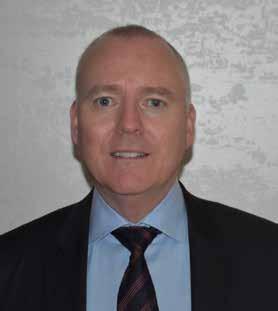
Launched in the US earlier this year and set to be rolled out in the Middle East in the near future, Prism reimagines how AI can support decision-making inside an ERP platform”
the most sought-after AI roles in the UAE, not every business has the bandwidth to build full in-house capabilities. That’s why accessible, embedded AI, like Prism, makes such a difference. We’ve made it conversational, intuitive, and deeply practical. It’s AI designed to make a real difference on the shop floor and in the boardroom, without adding complexity. Because ultimately, powerful technology should make people’s jobs easier, not harder.
What role do regional partners play in your vision for the Middle East, and what can we expect from Epicor in the coming months?
The local channel ecosystem here is truly impressive. Many of our partners have built strong reputations in verticals like discrete manufacturing, automotive components, EPC and fabricated metals. They understand not just the technical requirements of their clients, but also the operational challenges and cultural nuances that shape business decisions in this region.
At Epicor, we see these partners not as resellers, but as co-creators of value. That’s why we’ve invested heavily in enablement, from Epicor University’s guided learning paths to fully equipped sandbox environments that allow partners to experiment, demonstrate and innovate.
platform. It’s not an add-on or a bolton. It’s embedded directly into the flow of work. As a result, it becomes a virtual subject-matter expert who is always on hand. For example, whether you need to identify your highest-margin product lines or optimise inventory ahead of seasonal demand spikes during Ramadan, Prism is here to help.
In a region where many organisations don’t have dedicated data science teams, this kind of accessibility is a game-changer. While our research has found that data scientists, routeoptimisation specialists, and automation engineers are among
We also tailor our sales and marketing support to reflect the regional landscape, so whether a partner is based in Dubai, Riyadh, Muscat or Doha, they’re empowered with the tools and insights to connect with customers in meaningful, business-relevant ways. Looking ahead, we’re particularly excited about showcasing our latest AI and automation innovations at key industry events in the region. Because what we’re building today isn’t just software, it’s the digital backbone of tomorrow’s industry. And in a region that’s fast becoming a hub for industrial innovation, we’re proud to be helping shape what comes next.
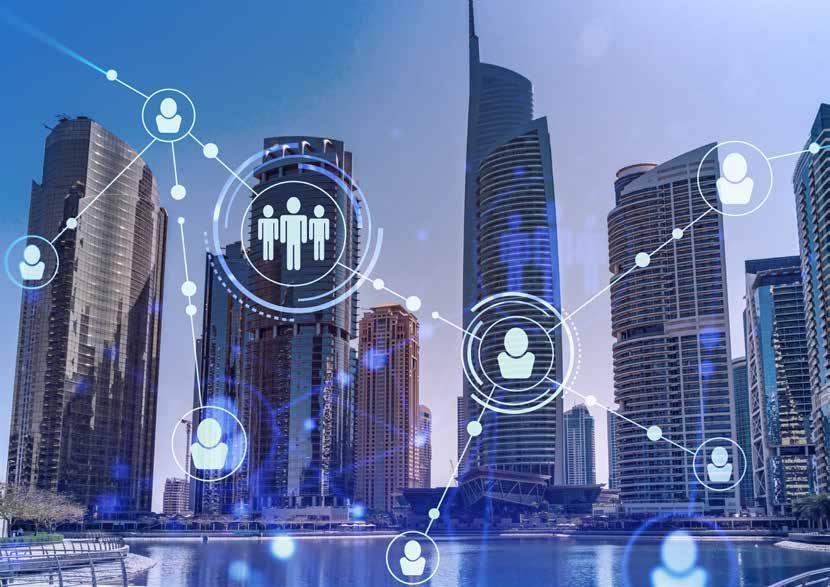
Sakkeer Hussain, Director – Sales & Marketing, D-Link Middle East and Africa, highlights how D-Link is addressing rising demand for secure, scalable, and intelligent networks in MEA, leveraging innovation, partnerships, and cloud-managed platforms to stay ahead of market trends
What are the key trends shaping the networking and connectivity market in the Middle East and Africa today?
The region is undergoing a transformation that’s hard to ignore. In the Middle East, governments are rolling out smart city initiatives and digital-first public services at scale. Cities like Dubai and Riyadh are setting the pace, but even smaller markets are quickly catching up. In Africa, meanwhile, the story is one of leapfrogging—millions of people are getting online for the first time, often through mobile broadband. The
real catalyst has been the growth of infrastructure: new subsea cables, fibre expansion, and 5G rollouts that are unlocking bandwidth in ways we’ve never seen before.
At the same time, the demand is no longer just ‘give me internet.’ Customers are asking for security, reliability, and easy scalability. The pandemic accelerated remote work and online learning, and that has left a permanent mark on expectations. Businesses don’t just want connectivity; they want it managed, monitored, and secure. So the big trend here is that the market is maturing—and customers are
becoming far more sophisticated in what they expect from networking providers.
How is D-Link evolving its product portfolio to meet changing customer demands?
A few years ago, people mostly thought of us as the company that made routers. And while that’s still a core part of our DNA, the reality today is very different. Our portfolio has grown into a full ecosystem. On the consumer side, we’re delivering mesh Wi-Fi systems, mobile 4G/5G routers, and easy-toinstall surveillance solutions—because families and small businesses want
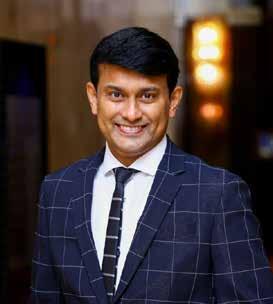
We’re putting serious weight behind 5G and edge-cloud networking, because remote connectivity is no longer a ‘nice to have’, it’s a necessity across MEA”
Cairo, or a government project in Abu Dhabi, we want to provide the right-sized solution that’s easy to deploy and scale.
How are you helping partners and resellers capitalise on new opportunities in the region?
Partnership is everything in MEA. The region is incredibly diverse— every country, sometimes every city, has different dynamics when it comes to connectivity needs, budgets, and regulations. We know that the best way to reach customers is by empowering the partners who already understand these nuances.
We’ve built strong channel programmes that don’t just offer rebates or discounts, but provide real enablement: training workshops, hands-on certifications, and marketing support that helps resellers tell the story to their customers. For example, when a partner pitches to a school that wants to modernise its network, we don’t just ship them switches and access points—we work with them to design a solution, run demos, and make sure the rollout is smooth.
Cloud-managed networking is another big play. Nuclias, for instance, reflects where the industry is heading—towards simplicity, flexibility, and scale. Businesses no longer want to wrestle with complex on-prem solutions; they want networks they can monitor from anywhere, in real time, with built-in intelligence. And then, of course, security. Innovation also means hardening our products, ensuring compliance with government standards, and giving enterprises the confidence that their data is protected. So over the next 12–18 months, innovation for us is about making sure customers don’t just get cuttingedge tech, but tech that actually makes their lives easier.
Looking ahead, what are your priorities for strengthening D-Link’s presence and ecosystem in MEA?
simplicity, but without compromise on speed or security.
On the enterprise side, we’re pushing boundaries with Wi-Fi 7 and cloud-managed networking. Our Nuclias platform, for example, allows IT managers to monitor and control entire networks remotely with just a few clicks. That kind of visibility and ease-of-use is a game-changer for schools, hospitals, and enterprises that don’t always have large IT teams. And then there’s IoT. Everything from smart sensors to security cameras needs a reliable backbone, so we’re integrating our solutions with the broader connected ecosystem.
Ultimately, the portfolio is evolving to be flexible. Whether it’s a household in Nairobi, a startup in
We’re also investing in tools like online ordering platforms and partner portals to speed up the process. And importantly, we collaborate across verticals— education, hospitality, healthcare— so that our partners have reference cases and best practices to lean on. That’s how they win deals, and when they grow, so does D-Link.
What role does innovation play in D-Link’s strategy for the next 12–18 months?
Innovation is really the heartbeat of our strategy, but we look at it through a very practical lens. Right now, Wi-Fi 7 is front and centre. The jump in speed, capacity, and reliability it offers is critical for high-density environments like universities, stadiums, or large office campuses. At the same time, we’re putting serious weight behind 5G and edge-cloud networking, because remote connectivity is no longer a ‘nice to have’—it’s a necessity across MEA.
Our vision is long-term. We want to be part of the region’s digital future, not just a supplier along the way. To do that, we’re doubling down on three fronts: being local, being visible, and being relevant.
Being local means working handin-hand with ISPs, governments, and industry stakeholders to deliver solutions tailored to their context. Being visible means taking part in flagship projects— whether it’s smart city rollouts, digital infrastructure programmes, or enterprise transformation initiatives—so that D-Link is top of mind when big opportunities emerge. And being relevant means continuously refreshing our product line with solutions that fit the evolving needs of both businesses and consumers in MEA. We also see huge value in expanding our ecosystem. That means tighter collaboration with technology partners, chipset makers, and cloud providers so that our solutions integrate seamlessly. Because in the end, customers don’t want ‘boxes’—they want complete, future-proof solutions. That’s where our focus will be as we grow our presence across the region.



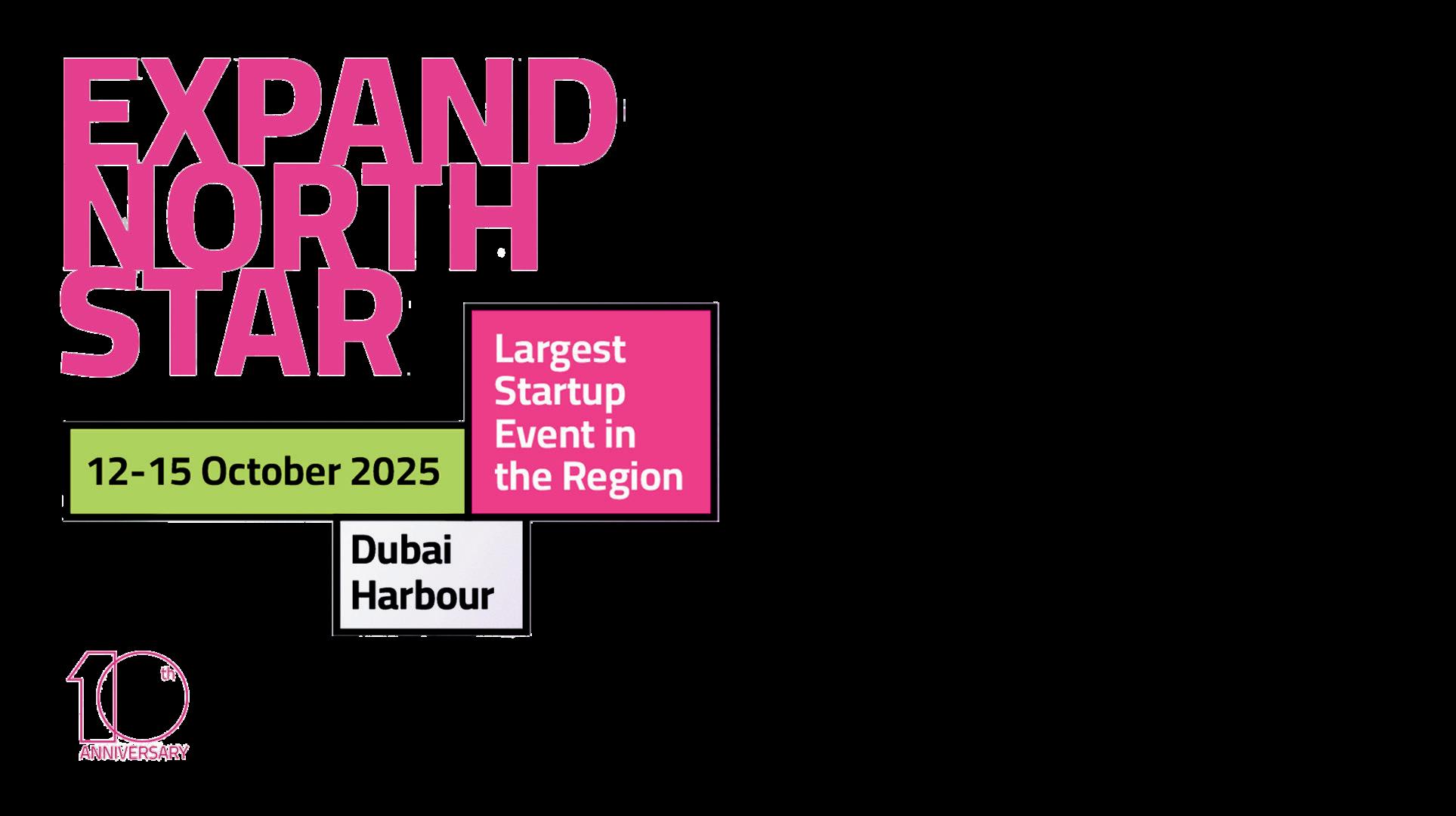




Seelan Nayagam, President – Asia Pacific, Middle East & Africa, DXC Technology, outlines how innovation, ESG, and strategic partnerships are shaping enterprise success in the region

How is DXC helping enterprises stay ahead?
We follow a strategic, value-driven approach that emphasises innovation, scalability, and alignment with customer needs. DXC’s AI Workbench is a great example — it brings together leading partner capabilities, including AWS and Microsoft, to help organisations rapidly explore, test and deploy AI use cases tailored to their industry.
Moreover, we actively seek out emerging technology providers that enhance our ability to deliver leadingedge solutions across industries. The onboarding process typically involves collaborative solution development, where we co-design and implement integrated platforms tailored to specific client challenges.
What are the key priorities and challenges you see for enterprises in the Middle East and Africa right now, and how is DXC addressing them?
The expectations of large enterprises in the Middle East and Africa are markedly
different from those of smaller businesses. Our customers, which include some of the region’s leading brands, expect their technology partners to demonstrate proven expertise, scale, and resilience. A trusted operating partner to many of the world’s most innovative organisations, we draw on an immense depth of global expertise. This is bolstered by our over three decades of experience in the region, presence in 10 strategically located cities across MEA, and the ability to lean on our regional delivery centres and multi-lingual talent pool. All combined, this gives customers confidence that we can deliver complex, business-critical programmes at scale.
We are also seeing ESG move to the top of the agenda. With the UAE and Egypt being among the most recent hosts of the landmark COP summits, and the relatively recent introduction of unified ESG disclosure metrics by the GCC Exchanges Committee, the bar has been raised. Enterprises are no longer just looking at their own operations, but also considering their partners’ commitments to sustainability and inclusion.
With a 58 per cent reduction in greenhouse gas emissions since FY19, procuring nearly 40 per cent of our electricity from renewable sources, and recycling or reusing 99 per cent of our e-waste, DXC has a competitive advantage. We also bring this expertise into the solutions we deliver, helping customers embed ESG principles into their own transformation initiatives.
What sets DXC’s partnership strategy apart from others in the industry?
Our partnership approach is based on strategic alignment, technical excellence, and the ability to co-create value for clients. We prioritise partners that complement our mission to deliver transformative IT solutions, especially those with strong capabilities in cloud, AI, security, and automation. Certifications, proven delivery track records, and innovation potential are key factors in the selection process.
Along with AWS and ServiceNow, we maintain strong, strategic relationships with SAP, Microsoft, Oracle, Dell Technologies, and many others. Through joint business objectives, investments, innovation and codevelopment with our partners, we enable our customers to harness the power of technology at scale and transform their businesses.
How do these partnerships translate into value for your customers?
DXC brings differentiated value to our customers through the depth of our global partnerships. This isn’t just in technology capabilities, but in commercial leverage, industryspecific use cases, and joint innovation frameworks. Our global scale, combined with local know-how, enables us to reduce the cost and risk of implementing new technologies while accelerating time to value.
We’ve invested in developing world-class innovation centres which serve as co-creation hubs, where customers, DXC experts, and partners come together to test, validate and scale ideas using real-world data and challenges. It’s through these spaces that we help customers unlock the full potential of technologies like AI and cloud, aligned to their business goals.
We also invest significantly in developing skills on our partners’ platforms. For instance, Dynatrace recently named us their Global Partner of the Year, recognising that we bring unparalleled scale and expertise to their ecosystem, with one of the largest investments in Dynatrace talent across the IT industry.
Please share a use case where DXC leveraged these partnerships to deliver significant business outcomes for a client.
A good example that demonstrates the impact we make is an AWSbased AI solution we delivered for Ventia, a large essential infrastructure service provider. Their business is heavily reliant on successfully responding to highly complex tenders. Each proposal must be tailored, accurate, and timely, especially when bidding for large-scale, multi-million-dollar contracts. But assembling these responses often involves manually sourcing information from vast document libraries, a process that could take days and tie up valuable resources.
DXC partnered with Ventia to transform this critical process using AI and cloud technologies. Together we developed Tendia, an AIpowered bid writing solution built on AWS including Amazon Bedrock, Fargate, Kendra, and Cognito. The platform was trained on Ventia’s previous submissions and internal knowledge base, enabling it to understand context, source relevant information quickly, and generate draft responses in minutes, instead of days.
Theresults have been significant. Ventia has not only cut bid preparation time drastically, but also improved the quality and consistency of proposals. More importantly, it has freed up their teams to focus on higher-value, strategic thinking, which gives them a competitive edge in a fast-moving market.
Beyond implementation, how does DXC ensure customers can scale and sustain innovation over time?
Many organisations discover that deploying a technology solution is only the first step. At DXC, we embed AI, automation, and industryspecific IP through platforms like our AI Workbench and Innovation Centres, to help customers scale innovation sustainably.
Our work with Daiichi Sankyo, a global pharmaceutical company, is a great example. They had implemented ServiceNow IT Service Management (ITSM) years earlier, which over time evolved into a common global platform. As more countries began deployment, and the number of managed applications rose, the workload for IT employees increased. DXC was selected as their ServiceNow ITSM global maintenance partner, not just to keep the platform running, but to transform it into a true strategic asset. We helped them enhance and integrate ServiceNow into wider business processes, unlocking data-driven insights
and driving greater agility across the organisation. This enabled them to achieve efficiencies, improve decision-making, and continually adapt the platform to support evolving business needs.

Shashank Sharma, Vice President & General Manager, Lenovo, META, warns that the end of Windows 10 support in 2025 is more than a routine upgrade; it’s a call for businesses to strengthen security, boost productivity, and future-proof their IT
With Microsoft ending support for Windows 10 in October 2025, businesses across the Middle East face a critical juncture. The 10-year run of arguably one of the world’s most loved operating systems is coming to an end, and while October still seems like a lifetime away, it’s closer than we think, and the clock is ticking.
To many, what appears as just another IT refresh cycle, in fact necessitates proactive planning to ensure security, productivity, and long-term IT resilience. And if you’re still clinging to Windows 10, now’s the time to start planning your exit strategy.
The security wake-up call Microsoft’s end-of-support declaration essentially means no more security updates and patches, making devices running Windows 10 increasingly susceptible to the nefarious cyber-criminal underworld lurking around every digital corner.
And these threats are only getting more sophisticated, especially now with AI-assisted attacks amplifying the scale and speed of intrusions. With Windows 10 end-of-life looming, IT systems become sitting ducks, and any new vulnerabilities
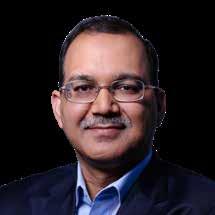

discovered after October 2025 will remain unpatched, leaving critical data exposed.
Not convinced? Consider this: 32 per cent of ransomware attacks happen because of unpatched system vulnerabilities, while older PCs are, on average, three times more likely to experience security breaches than newer models.
The average cost of a data breach? An all-time high in 2024 of US$4.88 million, a 10 per cent increase from 2023. In an era where data breaches and ransomware attacks are at unprecedented levels, ensuring a secure and up-to-date IT environment is no longer optional –it’s essential.
Unleashing productivity and performance
Beyond security, technology has evolved, supercharged by the epic AI innovation wave sweeping the globe. Windows 10 was great, much loved, and will be missed, but newer devices offer significant improvements in processing power, battery life, and overall performance.
AI-driven capabilities, better collaboration tools, and a smoother, more efficient user experience are all expected of new devices to support modern workloads, and in today’s hybrid work environment, those things are essential.
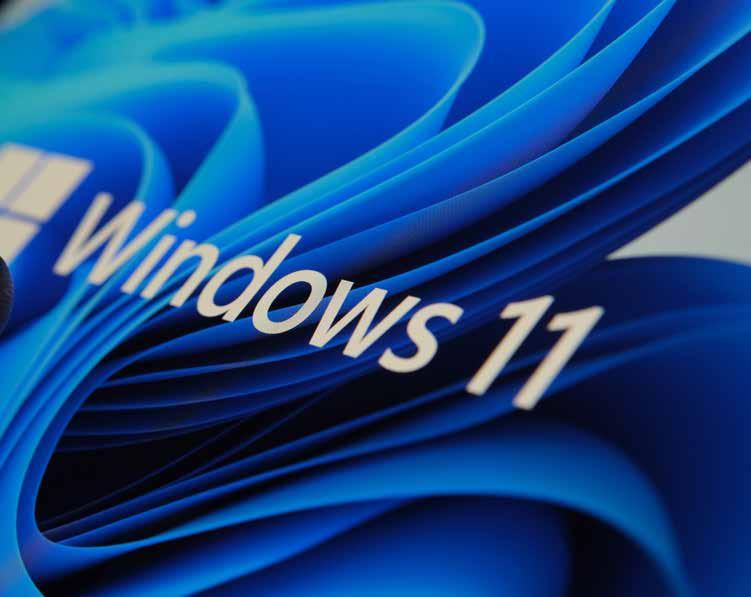
Windows 11 for example, Microsoft’s latest OS released in 2021, isn’t just a facelift. It’s optimised for speed and performance, with improved memory management and reduced power consumption. It also boasts better support for modern hardware, meaning faster performance and compatibility with cutting-edge features, while the built-in Microsoft Teams integration makes collaboration easier than ever.
The hidden expenses of outdated tech
If all this still has businesses on the fence on when to fully transition from Windows 10, consider the cost implications. Delaying an IT refresh
can, and will, end up costing more in the long run. Compatibility issues, increased downtime, and rising maintenance costs for ageing hardware all add up, impacting the bottom line. Service contracts often exclude obsolete equipment, while repair costs skyrocket for systems older than four years. Plus, outdated tech can harm a brand’s reputation. 90 per cent of customers say they’d consider taking their business elsewhere if a company uses outdated tech.
Lenovo: your partner in transition
So, what’s the solution? It’s simple: plan ahead. Start thinking about your Windows 10 exit strategy now. That means assessing your current IT
infrastructure, identifying your needs, and developing a migration plan.
The good news is, at Lenovo, we work closely with businesses across the Middle East and Africa to navigate tech transitions seamlessly. We offer expertise in ensuring compatibility, optimising IT investments, and enabling a smooth migration to modern devices.
Ultimately, the Windows 10 refresh is an opportunity to modernise your IT infrastructure, improve security, boost productivity, and position your business for long-term success.
For guidance on planning your refresh strategy or understanding the right approach for your business, feel free to reach out – we’re here to help.
Lagos, Nigeria’s bustling commercial and innovation capital, played host to the inaugural edition of GITEX Nigeria 2025, setting the stage for what many are calling a watershed moment in the continent’s digital transformation journey.
The event opened against the backdrop of the Government Leadership & AI Summit in Abuja, where leaders underscored Nigeria’s ambition to take a front seat in Africa’s fast-growing digital economy. Reinforcing this vision, H.E. Babajide Sanwo-Olu, Governor of Lagos State, described the event as “a launchpad for Africa’s tomorrow”—a powerful statement reflecting the nation’s readiness to drive the regional digital revolution.
Over two days, from 3–4 September, Lagos welcomed policymakers, global tech leaders, innovators, and startups to a dynamic lineup of events: the GITEX Nigeria Tech Expo, the Future Economy Conference, and the Startup Festival. This multi-track approach created a fertile ground for dialogue, innovation showcases, and meaningful collaborations, cementing Nigeria’s position as West Africa’s digital hub.
Collaboration Meets Innovation
Channel Insights Middle East, together with our partner Dubai Computer Group (DCG), witnessed firsthand the scale and ambition of this landmark event. From bold government commitments to the ingenuity of local
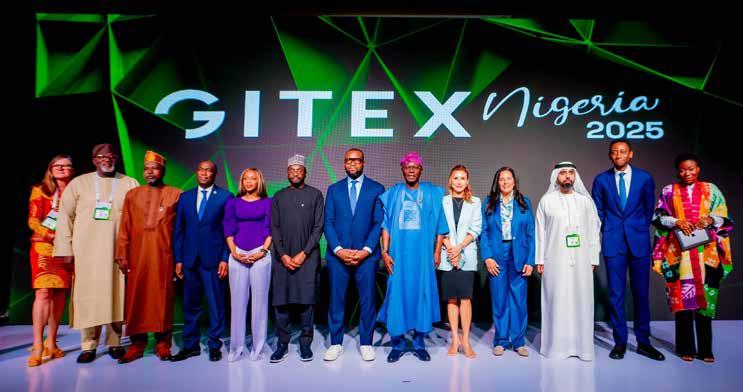
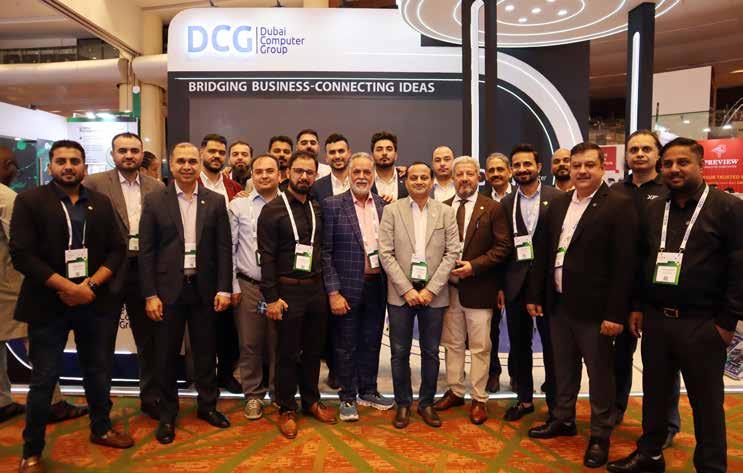
startups, the atmosphere was charged with optimism and opportunity.
If there was one key takeaway, it was this: Nigeria is moving rapidly from technology adoption to scalable impact. The conversations extended beyond innovation into real-world application, with partnerships and investments emerging as central drivers of growth. This transition signals a clear market maturity, opening doors to sustained digital expansion across industries such as finance, healthcare, and education.
The event also amplified the voices of startups, highlighting resilience, creativity, and the ability to address Africa’s unique challenges with homegrown solutions. Together, these elements positioned Lagos as not just a host city, but as the epicentre of Africa’s digital transformation story.
GITEX Nigeria 2025 was more than just a tech exhibition—it was a declaration of intent. By bridging government vision with industry execution, the event underscored Nigeria’s role as a catalyst for Africa’s digital future.
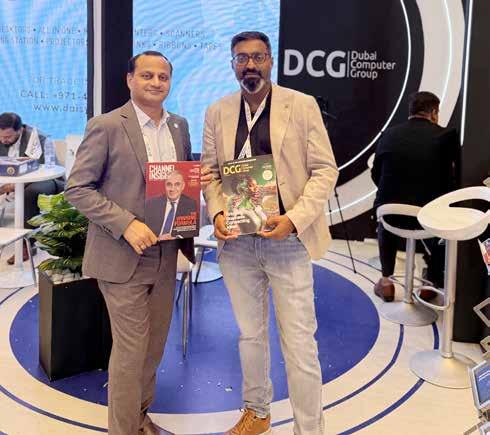
We had over 20 delegates representing Dubai Computer Group, showcasing their solutions at GITEX Nigeria. This was our first experience in the African market, and I’m grateful to all delegates for giving their 100% to make this event a success.”
ASHOK KUMAR, CEO, New Trend Computer Network and President, DCG
The world today is undeniably software-led – cloud, SaaS, AI, and security are no longer just enablers, they are at the core of how businesses operate and grow. GITEX Nigeria is an ideal platform to bring this conversation to the forefront because it convenes the region’s most dynamic partners, customers, and innovators in one place.”


SAYANTAN DEV, Global Head of the Software Solutions Group (SSG), Redington Group


I’m thankful to GITEX for organising such a wonderful event in Nigeria. This huge market was long overdue. The response from potential customers has been amazing, the market potential is huge, and I’m optimistic we can all do great business here.”
DHARMENDRA SAWLANI, Partner & MD, Savvy Impex FZCO and Ex-president, DCG
Africa has one of the fastestgrowing young populations in the world, and they’re entering the workforce with a completely new perspective on technology— seamlessly, anytime, anywhere. GITEX Nigeria is the opportunity to bring solutions that address their daily needs and empower this next generation.”


K S PARAG, Managing Director, FVC
What excites me the most here is seeing the people and the energy they bring, especially our partners like DCG, who bring the latest technology to showcase. It’s inspiring to see innovation that excites both me and the customers.”
ROY ZHAO, Product Manager- East & West Africa, TP-Link




What excites me most about GITEX Nigeria is the energy and spirit of innovation here. It’s not just about showcasing technology—it’s about connecting with businesses hungry for growth, exploring real digital transformation opportunities, and seeing how solutions like AI-powered ERP and mobile ERP can make an immediate impact in Nigeria’s fast-growing industries.”


SUDHEER SOMAN NAIR, CEO & Founder, eresource ERP & Azalea Ai
The fact that GITEX has come to Nigeria shows just how full of opportunities this market is. It’s a great platform for networking, meeting new people from Nigeria and beyond.”
GOZY IJOGUN, CEO, Task Systems






5:00 AM – 7:00 AM
My day begins with purpose, energising the cells with German supplements that awaken vitality and slow ageing. My mind is then nourished with spiritual reading, drawing inner strength and calm. A light breakfast seals the ritual, leaving body and spirit aligned, powerful, and ready to conquer the day.
9:00 AM – 12:00 PM
This block is reserved for tackling the most complex and high-stakes tasks. This might involve deep-dive analysis of market trends, developing sales strategies for a new product or solving a major client issue. My approach is to minimise interruptions by blocking out focus time on the calendar, ensuring these critical projects receive undivided attention.
1:00 PM – 5:00 PM
The afternoon is typically dominated by meetings and collaboration. This includes strategic meetings with the leadership team, one-on-one sessions with team members to mentor and provide guidance and high-level client meetings to strengthen relationships and close deals. My afternoon is centred on communication, decision-making, and driving the team’s collective goals.
7:00 PM ONWARDS
To unwind, the focus shifts to personal interests and family time. This could involve spending time with family or sometimes enjoying a good book. The goal is to fully disconnect from workrelated thoughts, allowing for complete mental and emotional recharge.
7:00 AM – 9:00 AM
This window is a critical time for strategic planning. It often starts with a quick review of my previous day’s performance metrics and a check of urgent emails from different time zones. The key focus here is on prioritising my day’s agenda: identifying the top 3 high-impact tasks, reviewing key client accounts and preparing for any internal or external meetings.
12:00 PM – 1:00 PM
Lunch becomes more than a meal—it’s a moment of connection and renewal. Sometimes it’s a working lunch with a customer or colleague, where relationships deepen and ideas flow naturally. Other times, it’s a quiet step away from the screen, a short walk that clears my mind and restores energy. Either way, this pause transforms into fuel, nourishing both strategy and spirit for the afternoon ahead.
5:00 PM – 7:00 PM
The end of the day is a time for reflection and organisation. I used this to respond to any pending emails, finalise documentation from meetings, and plan for the following day. This ritual helps me to mentally “close” the workday, preventing tasks from spilling into personal time and ensuring a smooth start the next morning.
Seeing team members succeed and grow, or a complex sales strategy come to fruition after months of hard work.
Starting each day with a clear list of priorities, as well as a quick check-in with key team members to stay connected to the ground reality of the sales team.
Best career advice you’ve received
Don’t just sell productsunderstand the customer’s pain, solve their problem, and deliver outcomes that truly matter.
Quote to keep you motivated
Success is the sum of small efforts repeated daily.
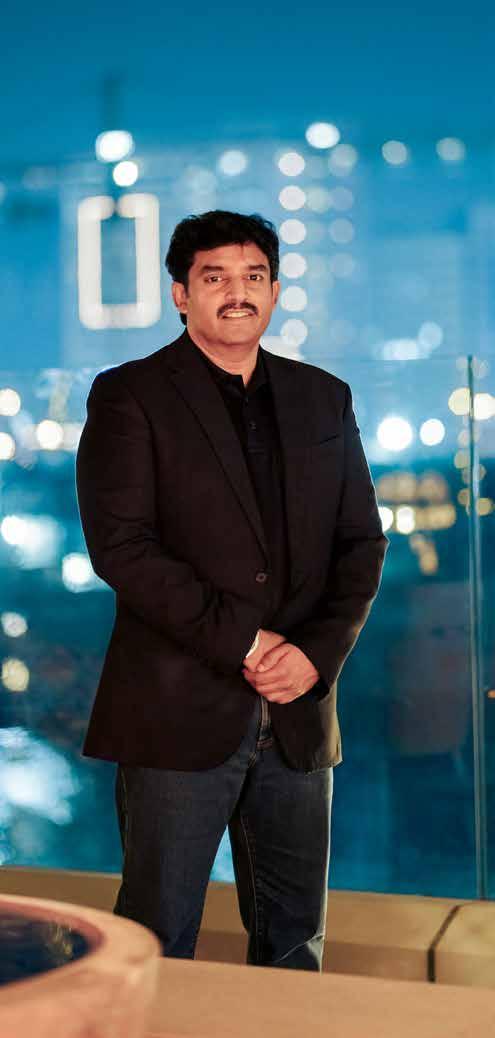



On September 9, 2025, Apple introduced its latest lineup of devices, headlined by the iPhone 17 series and the all-new iPhone Air. The iPhone Air is Apple’s thinnest smartphone yet, built with aerospace-grade aluminium and advanced glass, featuring a powerful A19 chip, enhanced thermal efficiency, and a next-generation camera system designed for high-
quality imaging and video. The iPhone 17 and 17 Pro models bring upgrades in performance, AI-driven photography, and extended battery life, with satellite connectivity expanding to more regions.
Apple also unveiled the Apple Watch Series 11, SE 3, and Ultra 3. The Series 11 introduces blood pressure monitoring, improved sleep tracking,
and faster processing, while the Ultra 3 focuses on durability and outdoor performance with advanced GPS accuracy, extended battery life, and new environmental sensors.
The AirPods Pro 3 were also launched, featuring improved active noise cancellation, enhanced spatial audio, and a redesigned charging case with USB-C support and longer battery capacity.
The ASUS ExpertBook B3 series is a new lineup of AI-powered business laptops designed to deliver performance, flexibility, and security. Powered by up to the latest Intel Core Ultra 7 processor (Series 2) with Intel vPro, Intel AI Boost NPU, Intel Arc graphics, and up to 64 GB of memory, the devices seamlessly handle demanding tasks while ensuring energy efficiency for extended battery life.
The laptops integrate advanced AI capabilities such as ASUS AI ExpertMeet, Microsoft Copilot, and AI noise-cancelling technology, enabling smarter collaboration and enhanced productivity.
Connectivity options include Wi-Fi 6E and 5G, while the lightweight 1.4 kg build, 180° lay-flat hinge, and
military-grade durability make them ideal for mobile professionals.
The series also emphasises sustainability and repairability with a new architecture-inspired chassis, over 25 per cent post-consumer recycled materials, and an easy-to-replace battery design requiring only six screws or a zero-screw quick-release option.
Available in 14-inch (B3405) and 16-inch (B3605) 16:10 displays with TÜV Rheinland eye protection and anti-glare panels, the laptops ensure comfortable use. Security is strengthened through Windows 11 Secured-core PC technologies, TPM 2.0, biometric login, webcam shield, and smart card reader, safeguarding critical data for today’s enterprises.
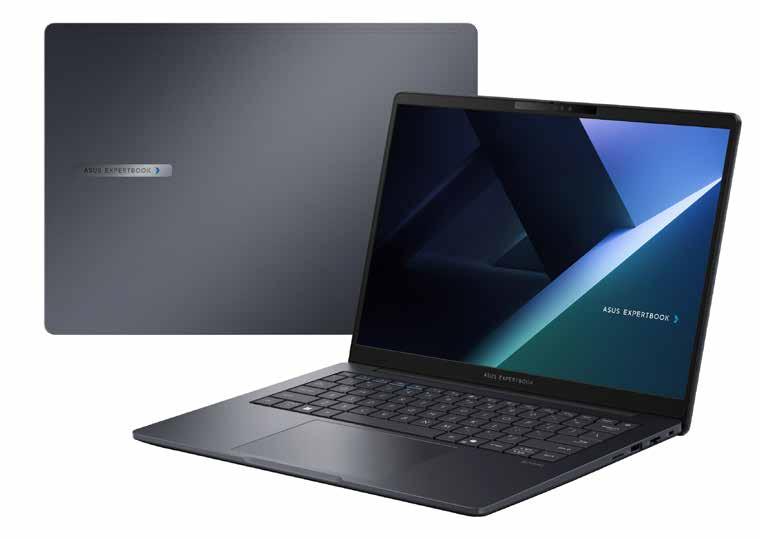


Augusta Spinelli, SAP


SAP SE announced the appointment of Augusta Spinelli as Regional President for Europe, Middle East and Africa (EMEA), effective immediately. Building on SAP’s presence and success in the region, Spinelli will be responsible for leading the EMEA teams across 53 offices spanning 89 countries, cementing the region’s role as a global growth engine for the company. SAP EMEA encompasses BeNeLux, France, Italy, Nordic & Baltics, Southern Europe, United Kingdom & Ireland, and the whole of the Middle East and Africa, (and excludes the 26 countries of SAP Middle & Eastern Europe (MEE), led by Alex Kläger comprising the market units of Germany, SAP’s birthplace and headquarter location, Switzerland, and Central and Eastern Europe).
In her new position, Spinelli is at the helm of SAP’s business in EMEA, driving business growth and innovation adoption for SAP customers in close collaboration with product engineering, services and with SAP’s partner ecosystem, empowered to deliver SAP solutions, following SAP’s methodologies to deliver value and outcomes. She is poised to lead the business to the next level, strengthening a value-driven relationship with SAP’s partners across EMEA and helping customers accelerate their digital transformation.
Epicor
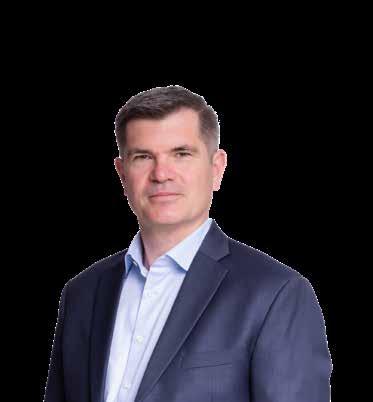
Epicor has announced the appointment of Kerrie Jordan as Chief Marketing Officer. With a unique blend of senior product innovation and strategic marketing experience, Jordan will lead Epicor’s global marketing strategy, driving brand growth and customer engagement across the make, move, and sell economy.
Since 2023, Jordan has served as Group Vice President of Product Management and ISV Partner Programmes at Epicor, where she’s driven the company’s Cognitive ERP roadmap, an AI-driven approach that transforms ERP from a system of record to a system of action and insight. With her appointment to CMO, Jordan will capitalise on the areas where industry-focused product, analytics, and go-tomarket strategy converge, speeding innovation and time-to-value for Epicor customers and accelerating global company growth.
Prior to Epicor, Jordan held product marketing leadership roles at Oracle. Jordan is a recognised thought leader in cloud ERP, digital transformation, and supply chain industry innovation. Her Epicor podcast, “Manufacturing the Future,” has explored a variety of technology trends and topics through in-depth conversations with manufacturing and supply chain leaders, experts, and influencers. Jordan is also a frequent Forbes Tech Council contributor.


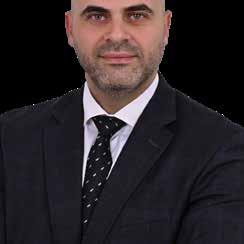


NetApp has announced the appointment of Bassel Kassem as Enterprise Regional Director (Country Manager) for the United Arab Emirates, reinforcing the company’s long-term commitment to the region and its ambition to fuel the UAE’s Vision 2030 and AI-powered transformation agenda.
This appointment signals a bold step forward in NetApp’s UAE growth strategy, positioning the company to expand its footprint and accelerate its impact across the nation’s strategic sectors — including government, finance, healthcare, defence, and energy.
In his new role, Bassel will lead NetApp’s UAE operations, driving strategic execution, deepening relationships with customers and partners, and delivering next-generation data infrastructure designed for an AI-first world.
Bassel’s appointment follows a series of strategic moves by NetApp across the Middle East, underscoring the company’s focus on local market investment, talent development, and technology leadership. It reflects NetApp’s broader mission to enable sustainable digital growth and deliver real business outcomes through secure, intelligent infrastructure. Aligned with national initiatives like the UAE Digital Government Strategy and Vision 2030, NetApp continues to invest in empowering organisations to unlock the full potential of their data — securely, efficiently, and at scale.


Veeam Software announced the appointment of Doriane Groene as Senior Director, Microsoft Alliance for EMEA. Doriane joins the EMEA Alliance team with over 20 years of high-tech experience and a proven track record of driving strategic partnerships and innovation across the Microsoft ecosystem. She is passionate about building strong relationships, coaching highperforming teams, and solving complex challenges through data-led approaches.
Most recently, Doriane led Intel’s EMEA Microsoft Global Account Team, where she spearheaded initiatives that boosted revenue through Azure Marketplace, developed cutting-edge co-selling programmes, and supported enterprise digital transformation efforts. Her expertise spans intelligent edge technologies, Azure cloud solutions, and data-driven strategy execution.
Prior to her tenure at Intel, Doriane held roles at Imation and Philips Laser Magnetic Storage, building a strong foundation in enterprise technology and partner engagement.
Doriane’s appointment comes at a pivotal time, as Microsoft and its partners prioritise Cloud and AI as central drivers for business transformation in 2026. Veeam is strategically aligned with this vision, empowering organisations to expand output, reduce costs, and accelerate growth through robust, secure and intelligent data protection solutions.


Explore how channel marketing leaders are translating complex IT solutions into clear value for partners and customers

We position ourselves as more than just a distributor — acting as a true growth enabler for the IT channel. We focus on verticalised enablement in today’s rapidly evolving landscape by equipping partners with product training, technical workshops, and joint customer engagement programmes tailored to specific industries. Our ecosystem benefits from dedicated sales and pre-sales support, ensuring advanced technologies are translated into real-world outcomes. By combining deep product expertise with vertical market insights and collaborative go-to-market strategies, we help partners simplify complexity, drive relevance, and deliver tangible value to customers.
Our strategy is centred around turning transformative technologies such as AI, cloud, and cybersecurity into vertical-specific opportunities for partners. Marketing initiatives are designed to be solution-led, combining thought leadership, co-branded campaigns, and demand-generation programmes that highlight clear business impact. Through digital engagement and customer-centric storytelling, we empower partners to position themselves as trusted advisors in their respective industries. By aligning strategic insights with hands-on enablement, we ensure that partners can accelerate adoption, capture new opportunities, and strengthen market presence across key verticals in today’s fast-changing technology landscape.

At TXOne Networks, we support our partners through certification programmes, joint learning, and continuous enablement designed to go beyond product knowledge. The focus is on helping them understand not only our solution portfolio, but also each market’s challenges and opportunities, while tailoring narratives regionally. By addressing real customer pain points, partners can confidently translate complex OT cybersecurity into clear, outcome-driven value stories that resonate with decision-makers and foster trust.
In the MEA region, TXOne’s marketing strategy focuses on connecting OT-native security to real operational challenges. We highlight solutions such as Stellar for endpoint protection and the Edge series for network defence, showing how they ensure continuity in critical industries. By combining joint GTM plans, cobranded storytelling, and regional campaigns, we empower partners to position OT security not just as a technical layer, but as a driver of resilience and growth. This approach allows partners to turn global trends into practical, future-ready outcomes for MEA customers.
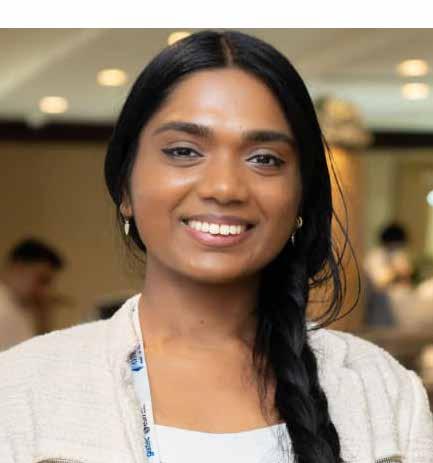
At CADD Emirates, we help partners simplify complex IT by focusing on clear value-driven messaging. Through webinars, workshops, and creative campaigns, we turn technical jargon into relatable stories and real-world use cases. This makes it easier for partners to engage customers in today’s fast-changing tech landscape.
With priorities shifting to AI, cloud, and cybersecurity, our marketing at CADD Emirates is all about enabling adoption. We run exclusive events, hands-on demos, and targeted digital campaigns that showcase these solutions as business enablers. It’s not just awareness—it’s about giving partners the tools to drive real customer growth.

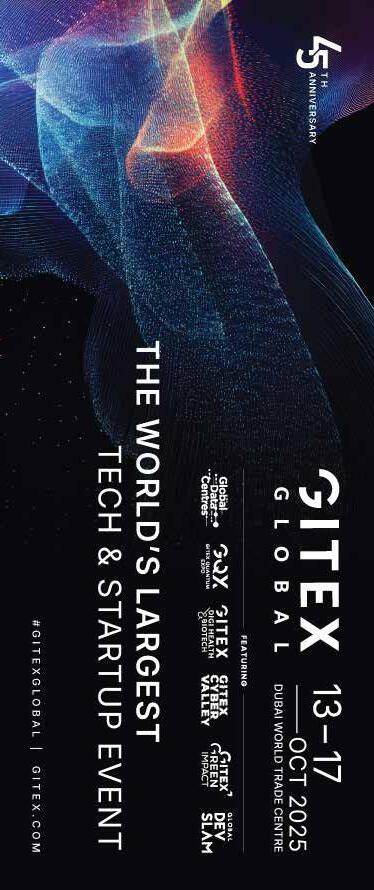


iGS950 Series
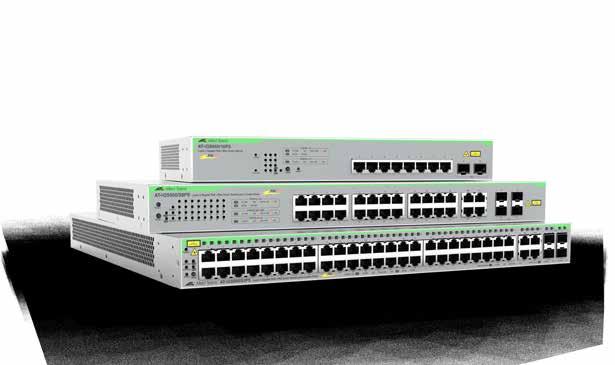
Get the iGS950 today and unlock the benefits of intelligent networking in a compact, cost-effective package. With clear dashboards, flexible PoE, and robust security, it’s the smarter choice for modern businesses.
Why Choose the iGS950?
Gigabit WebSmart Edge PoE+ Switches, available in 10, 16, 24 & 48-port
Connect and power wireless APs, security cameras, and a variety of other end devices with the full 30 watts of PoE+
Simple to deploy, simple to manage
Flexible & future-proof
Energy-efficient design
Upgrade your network with the iGS950 - performance, security, and efficiency made simple.
For more information, please contact one of our Allied Telesis Account Managers today.